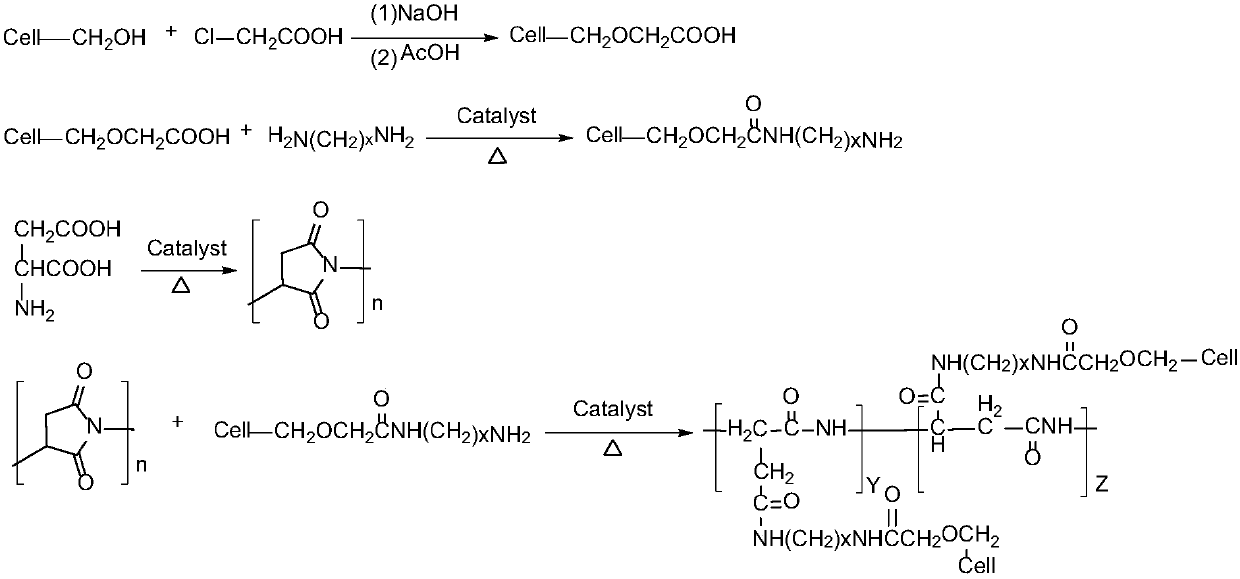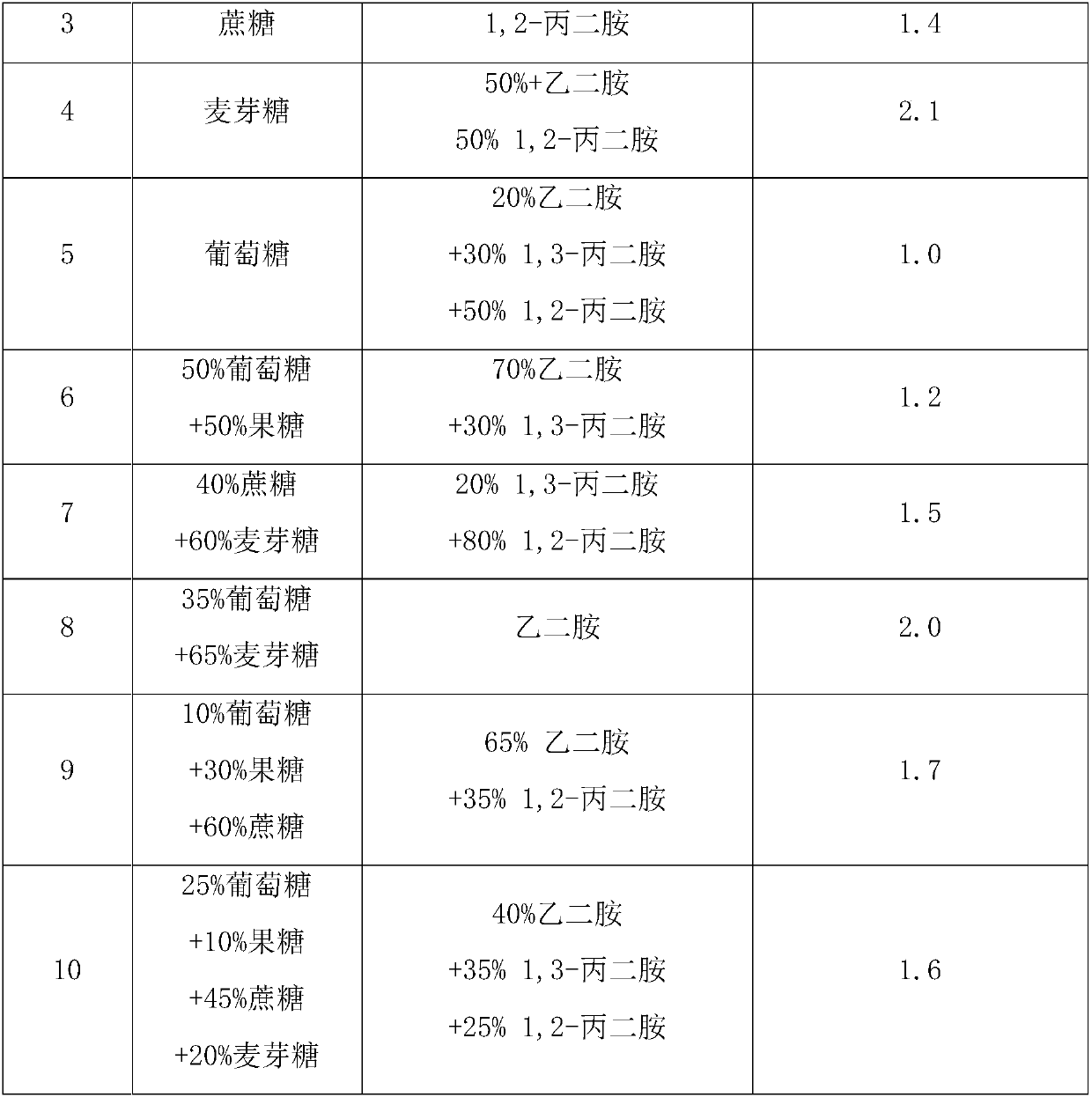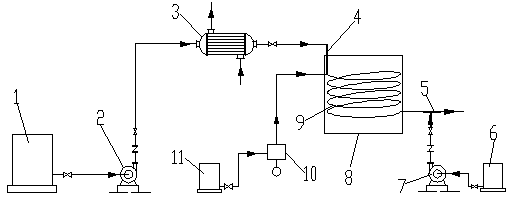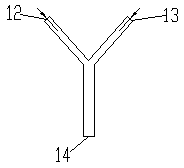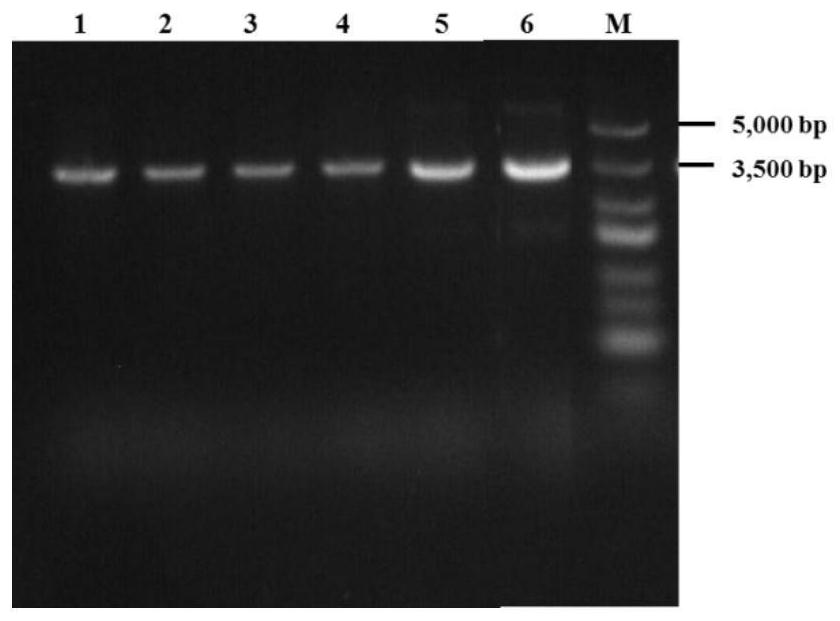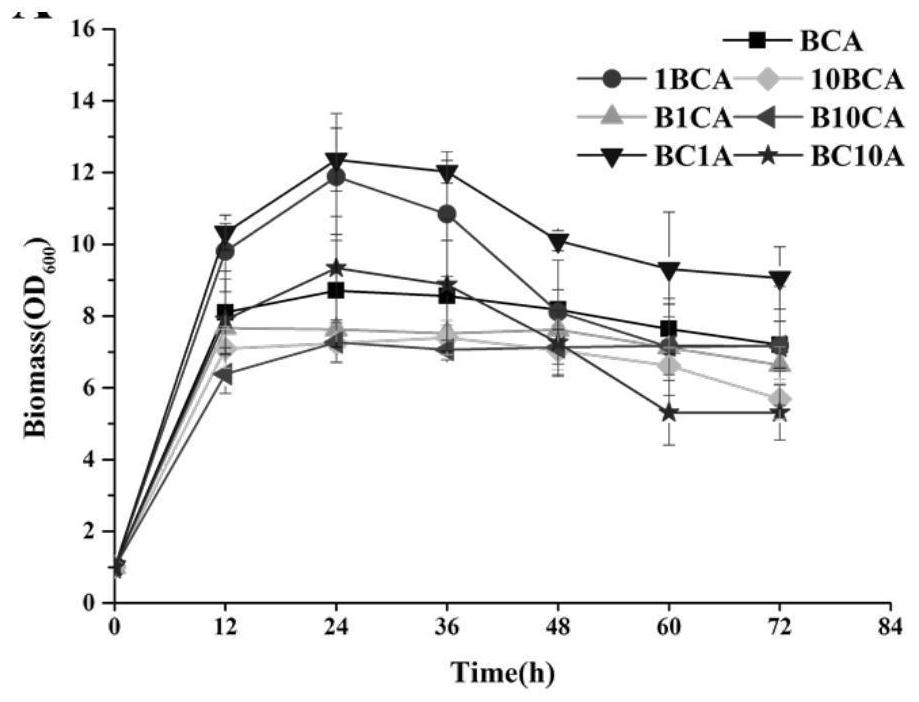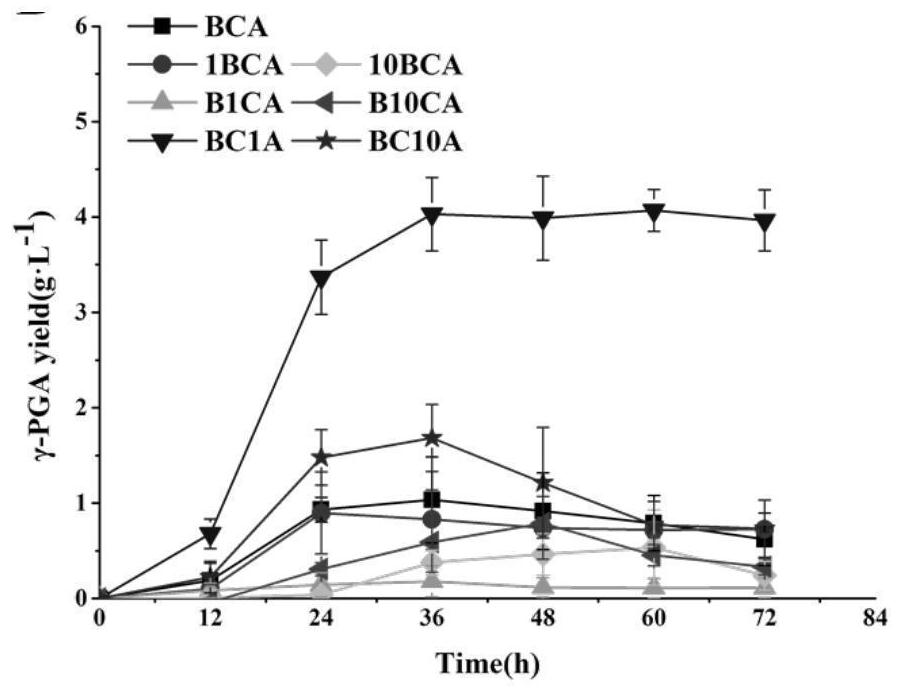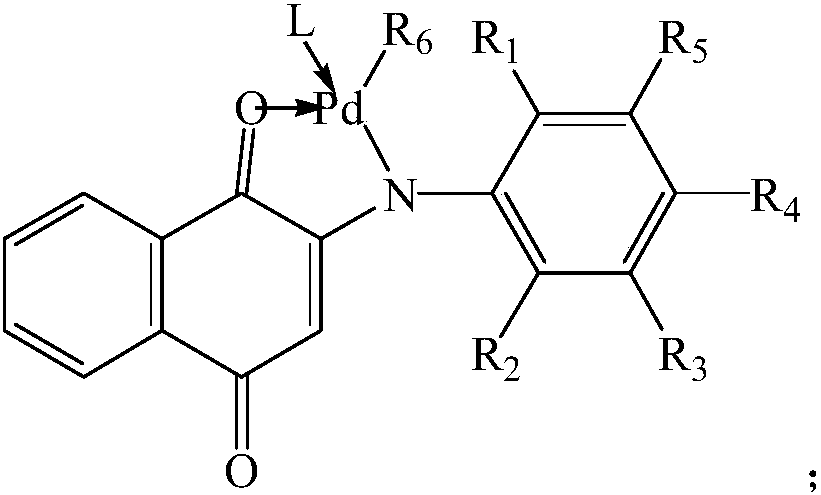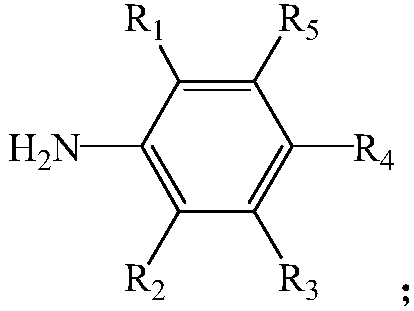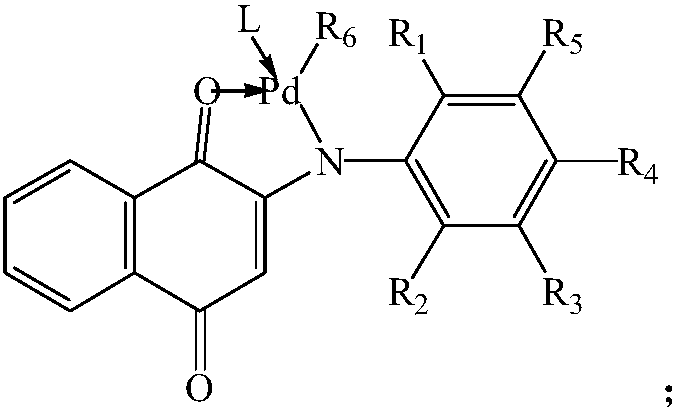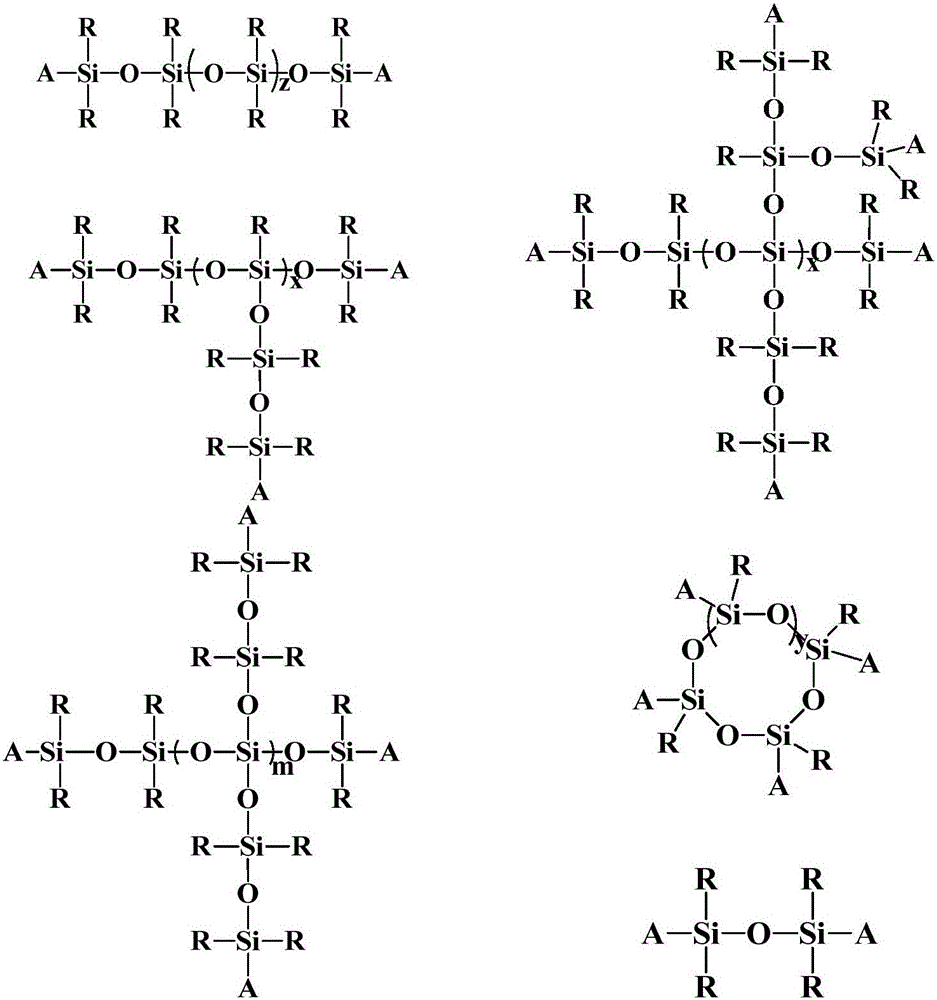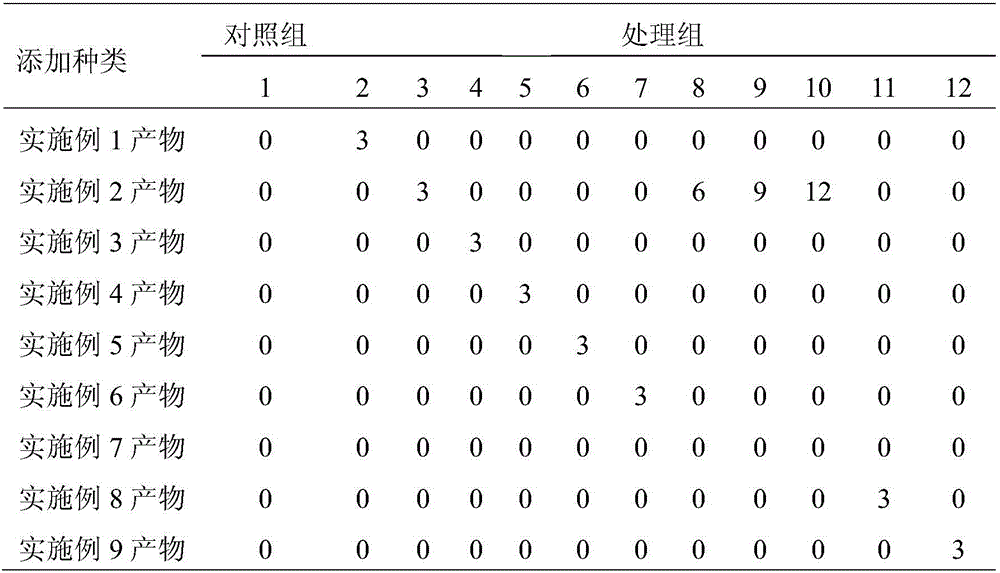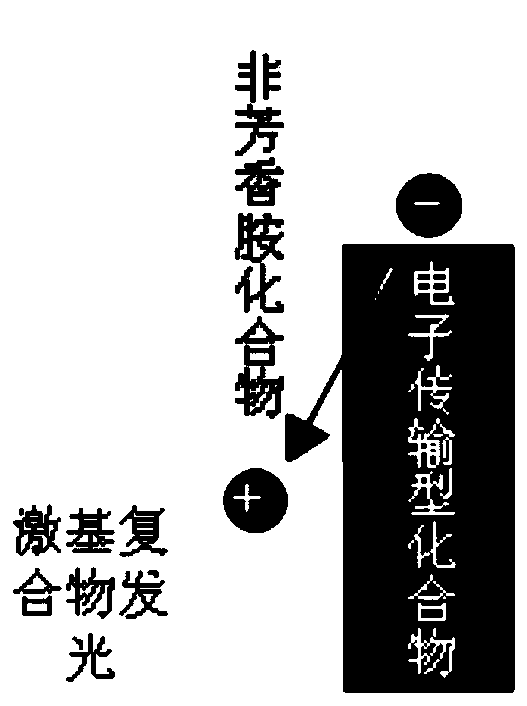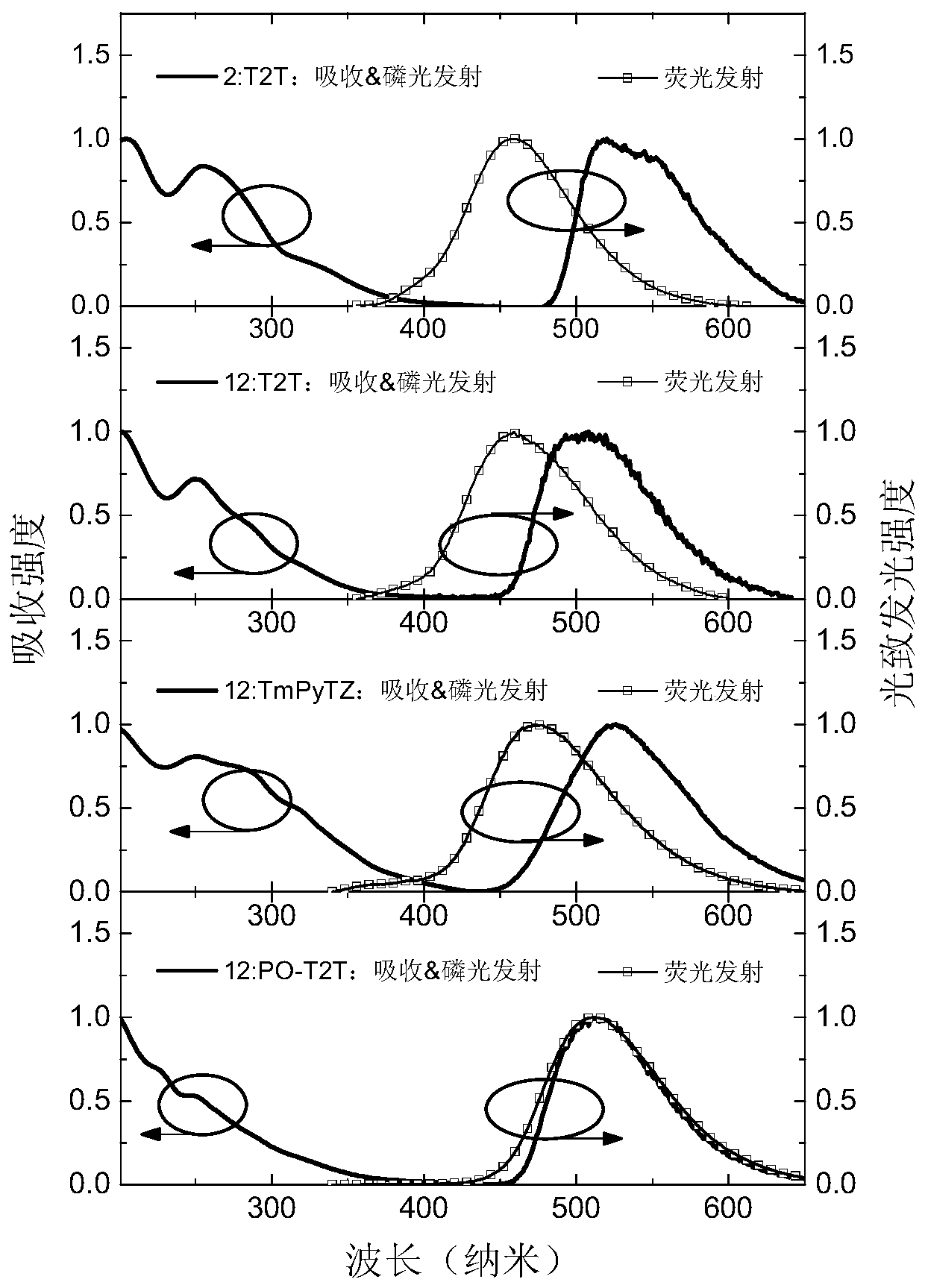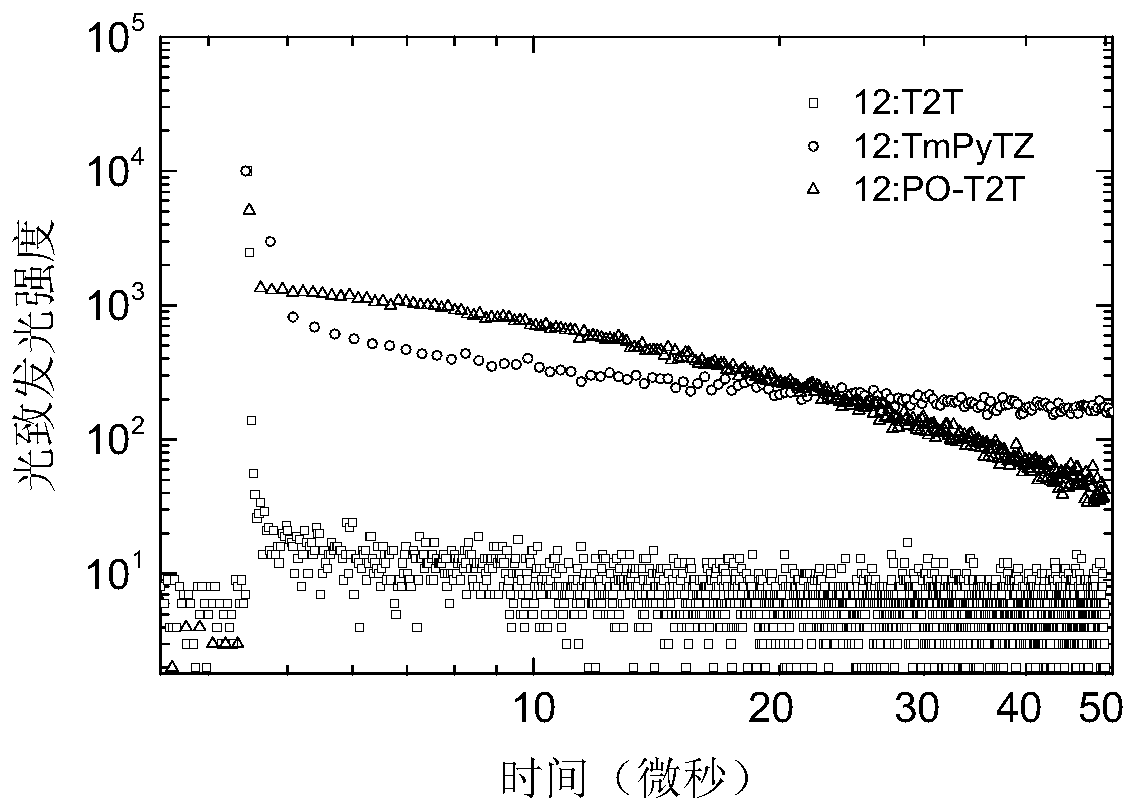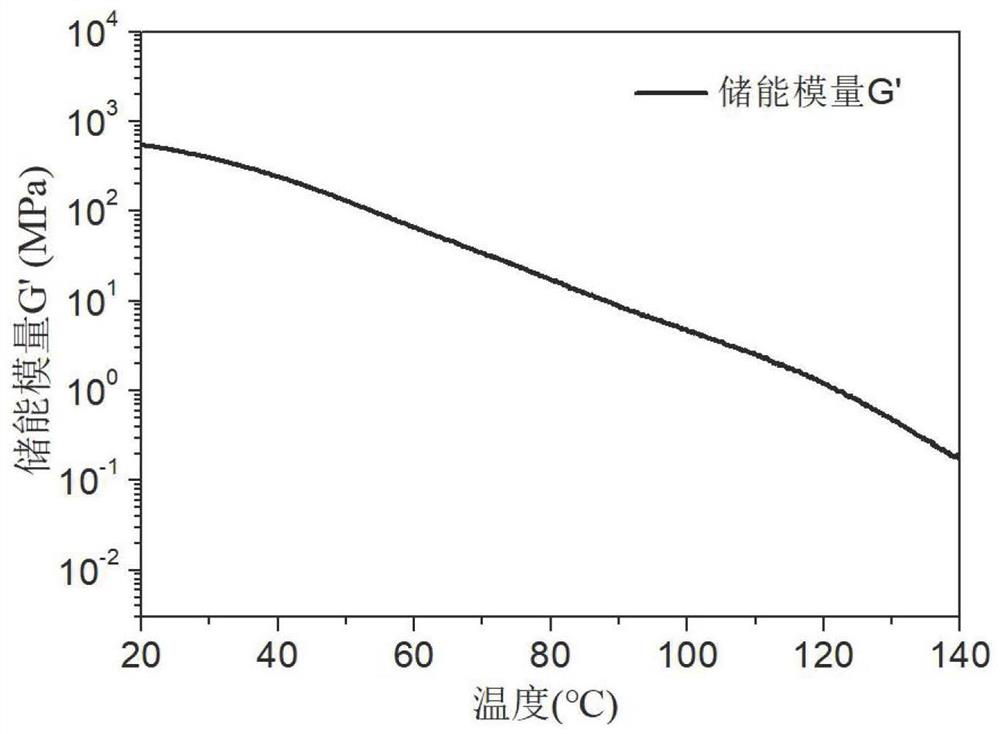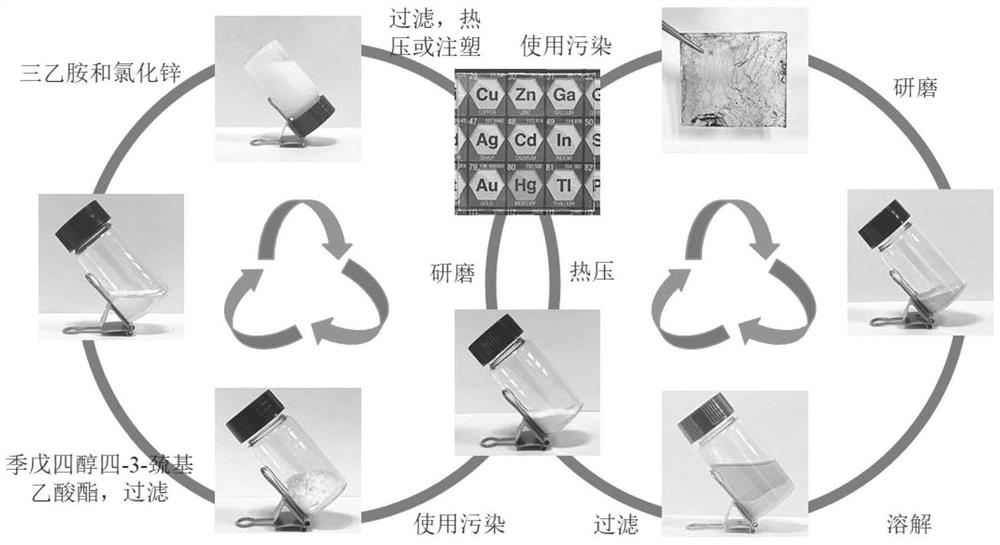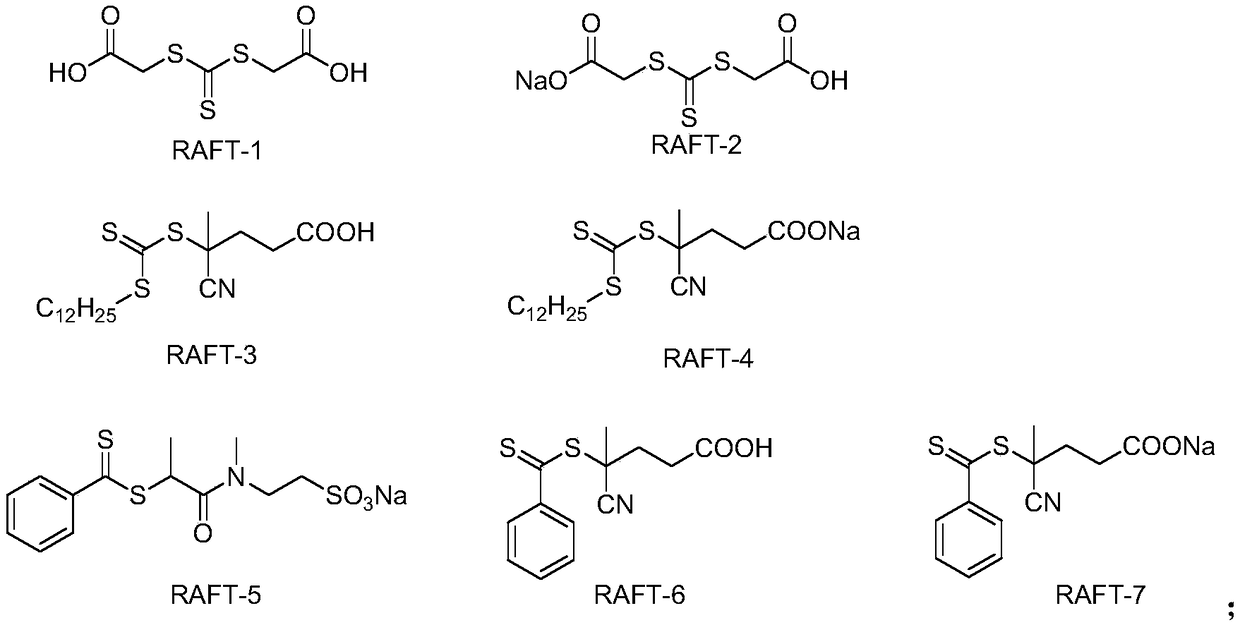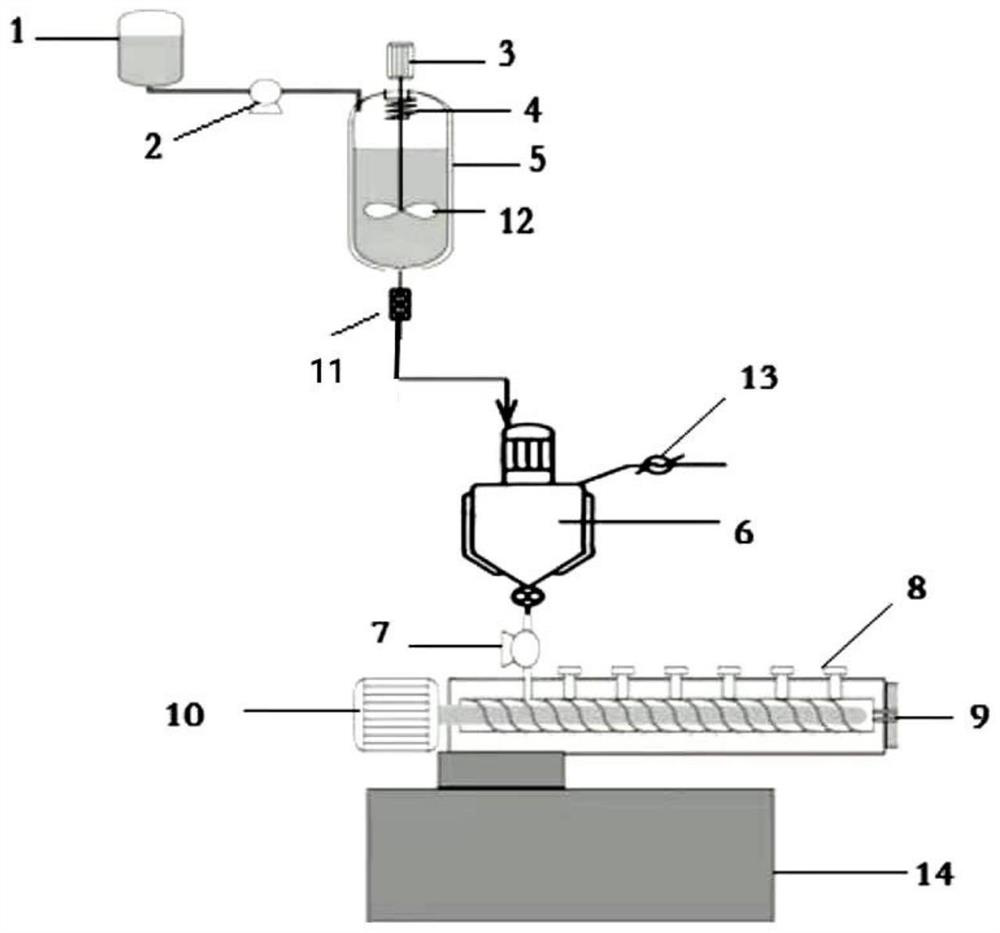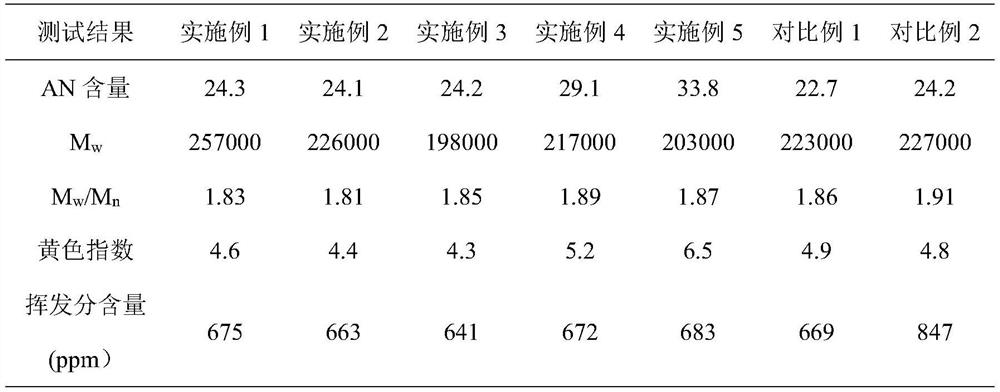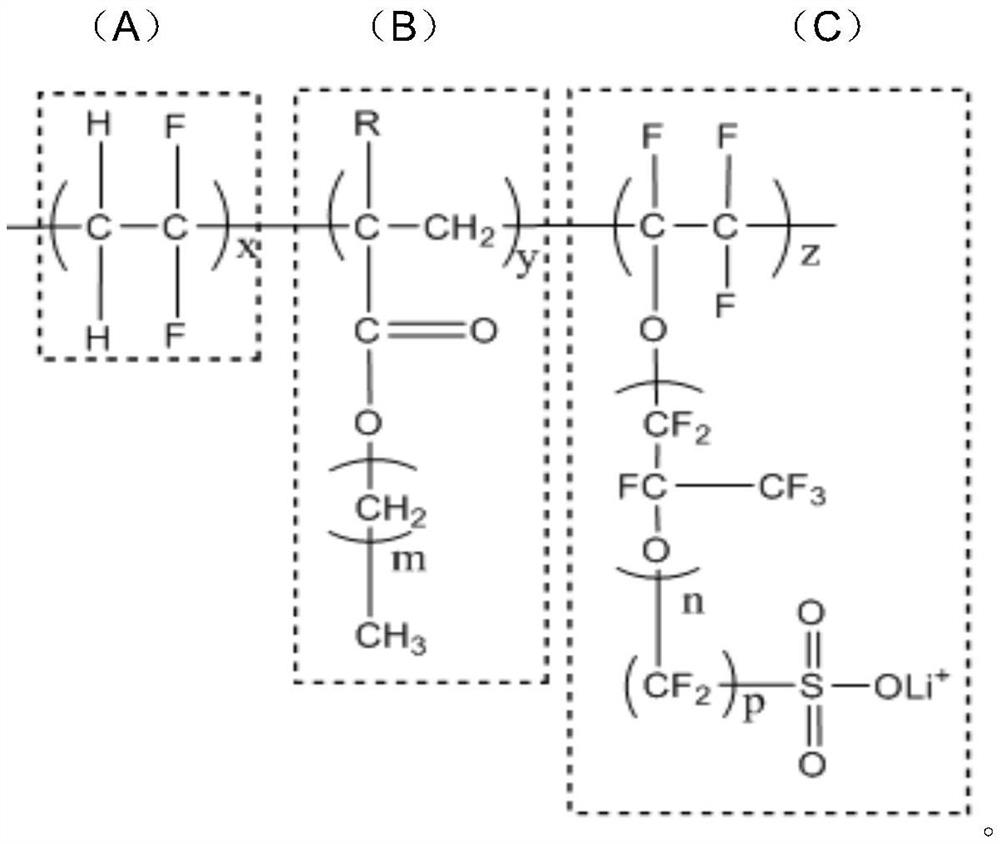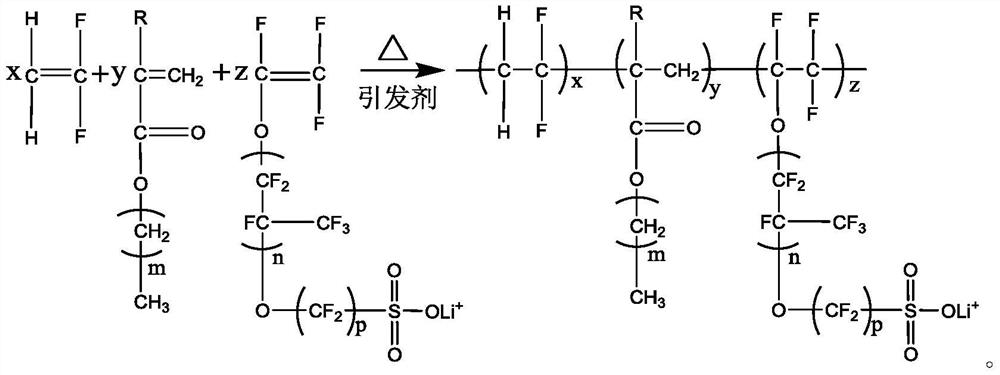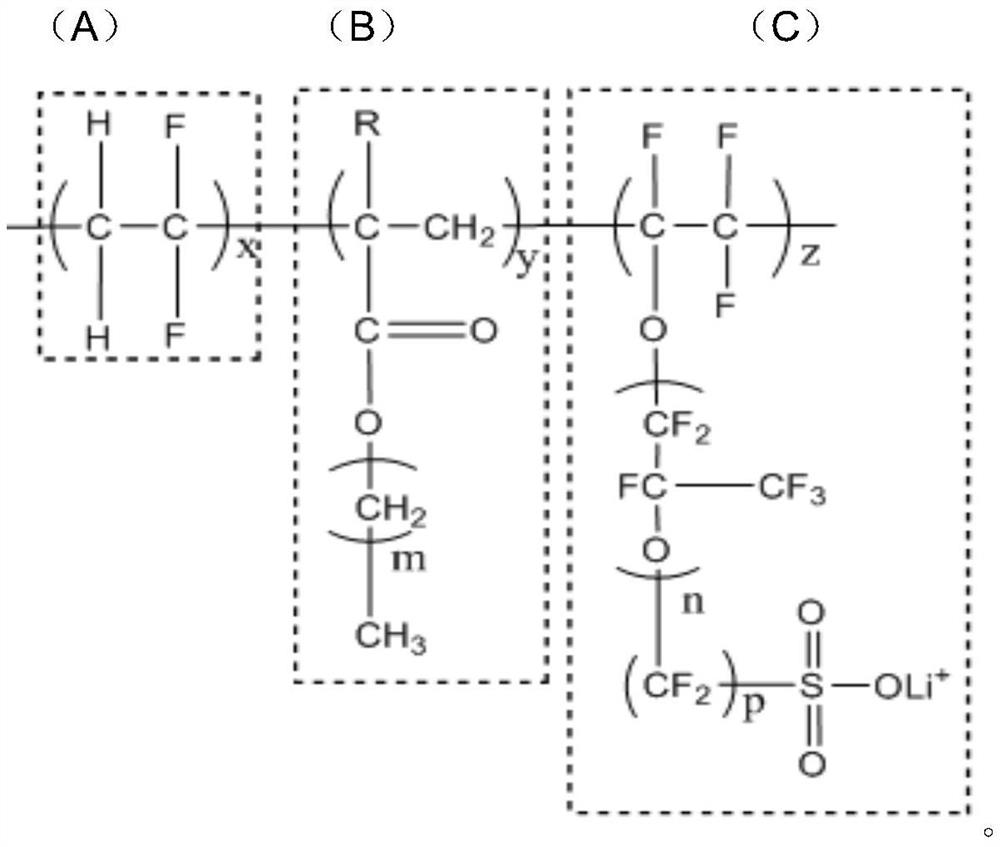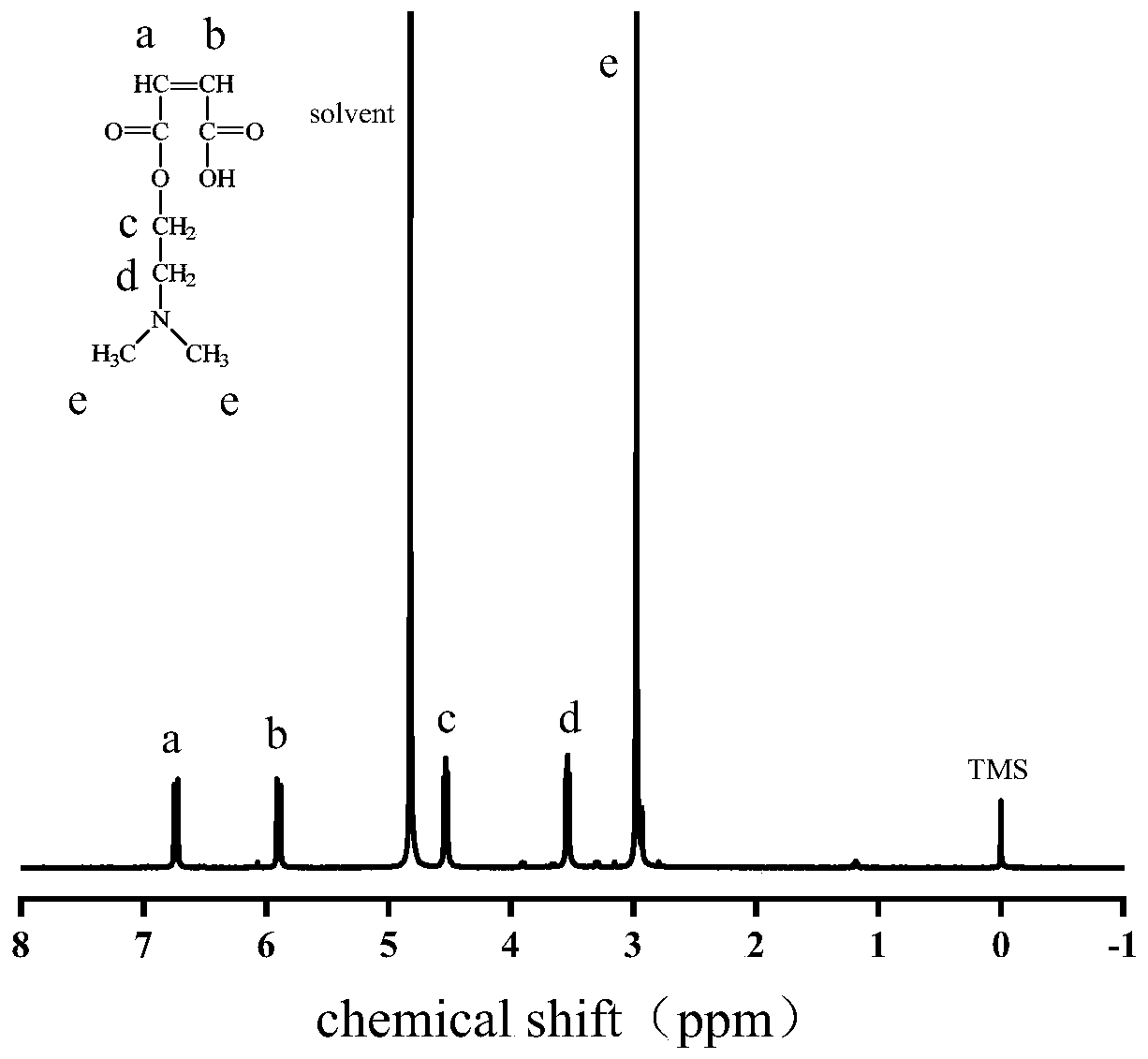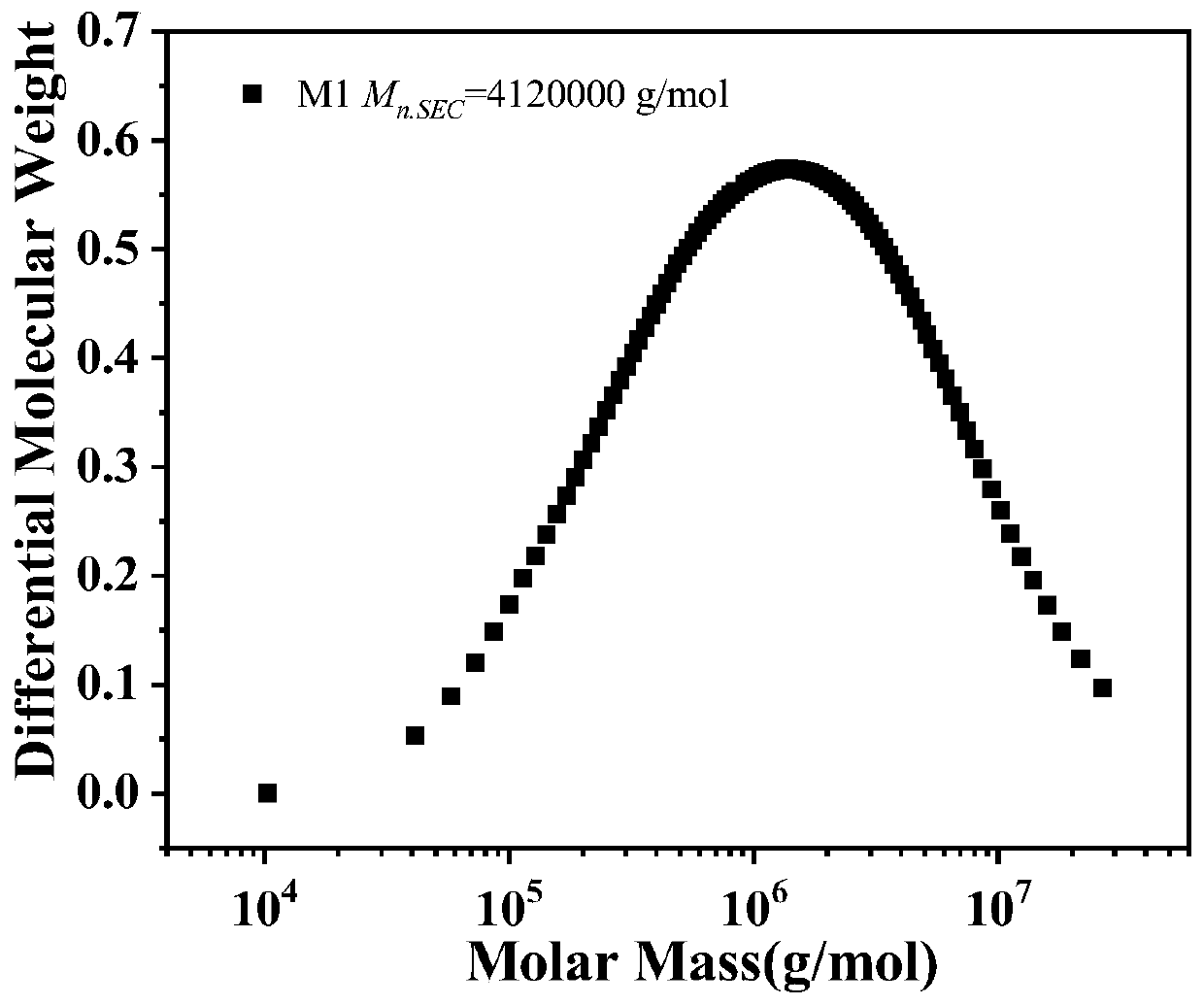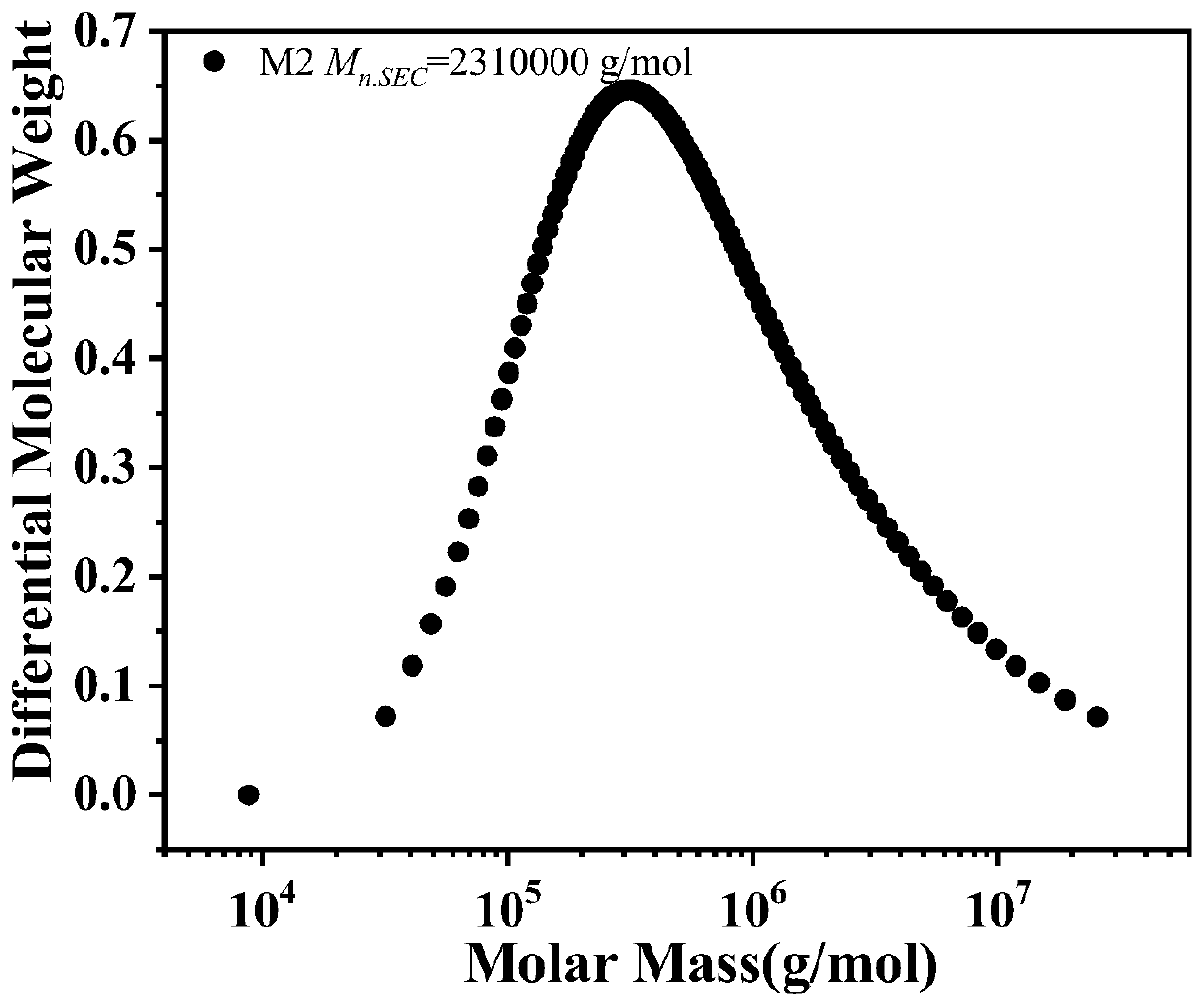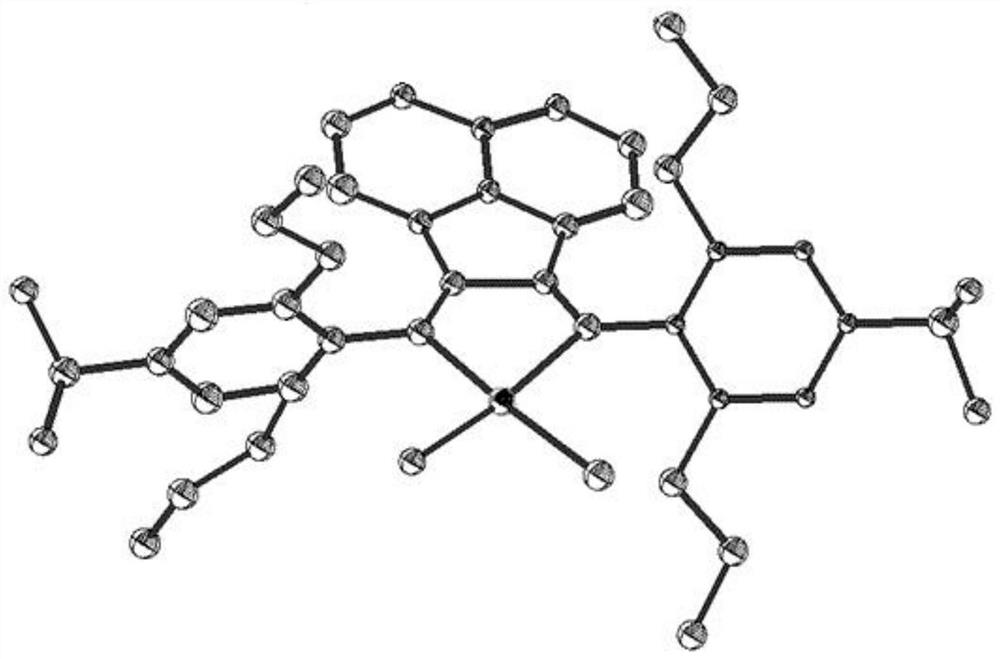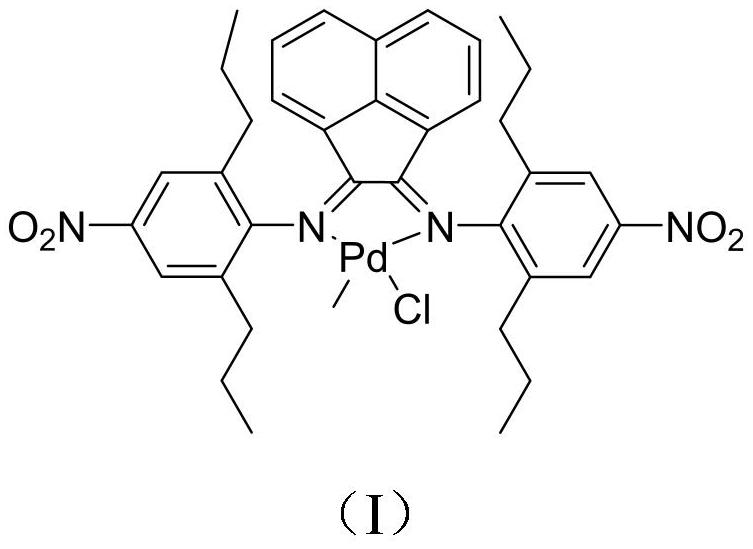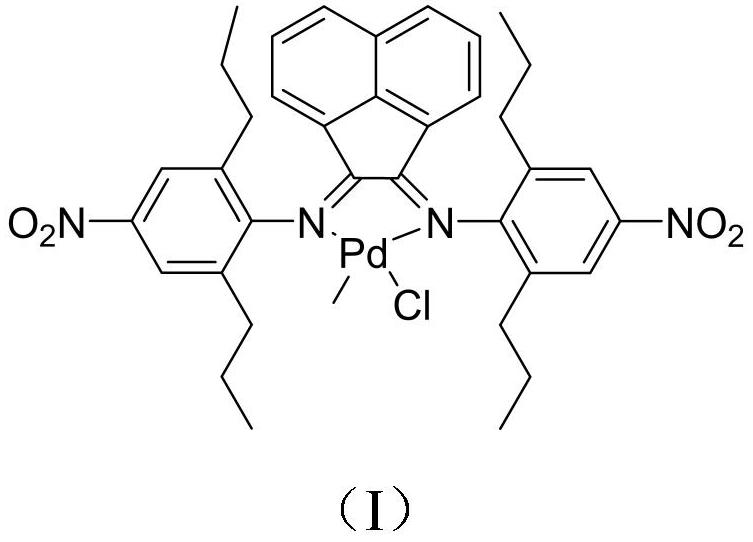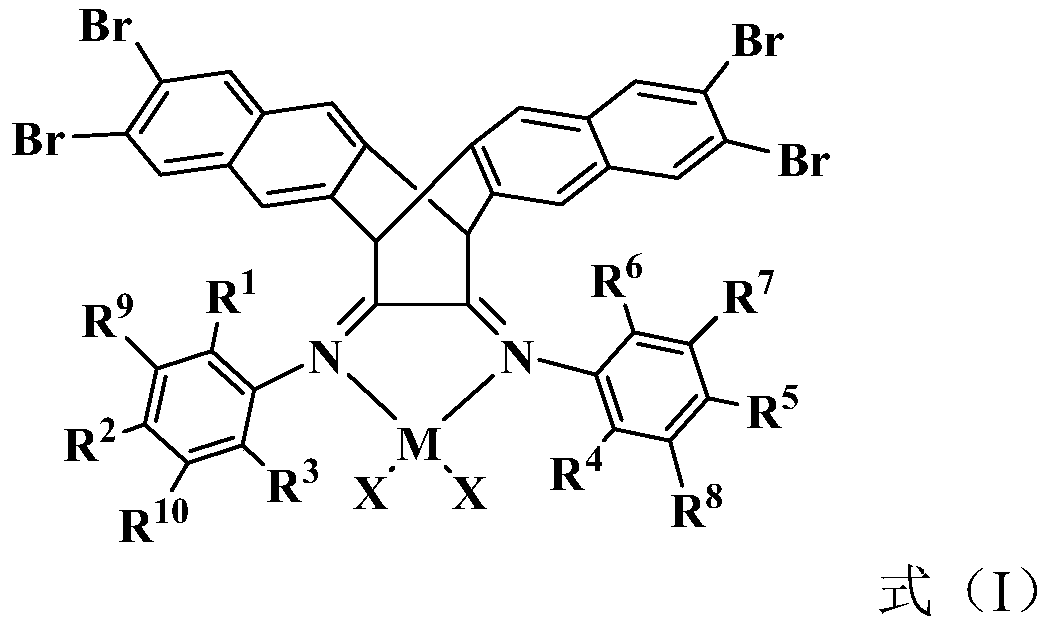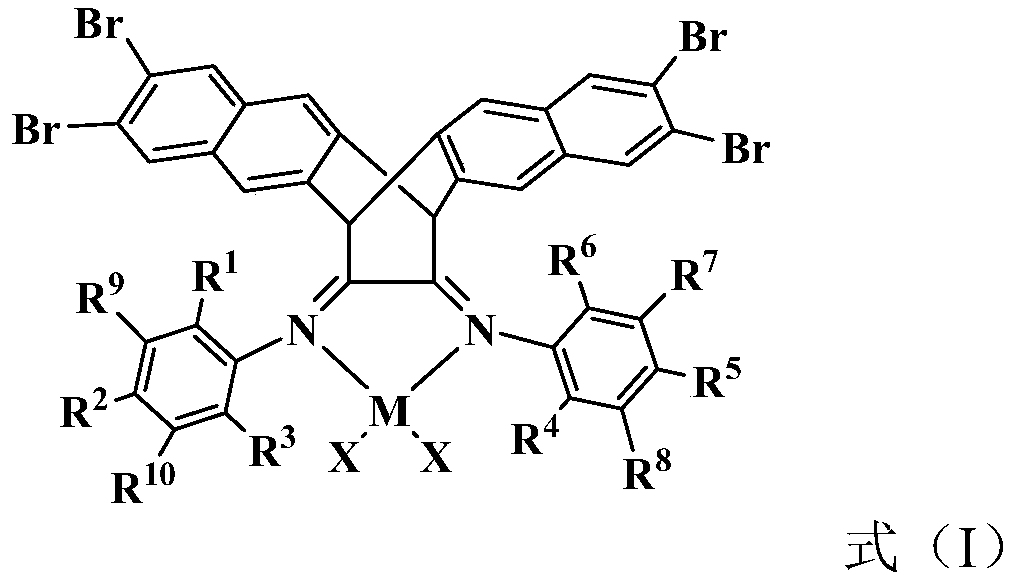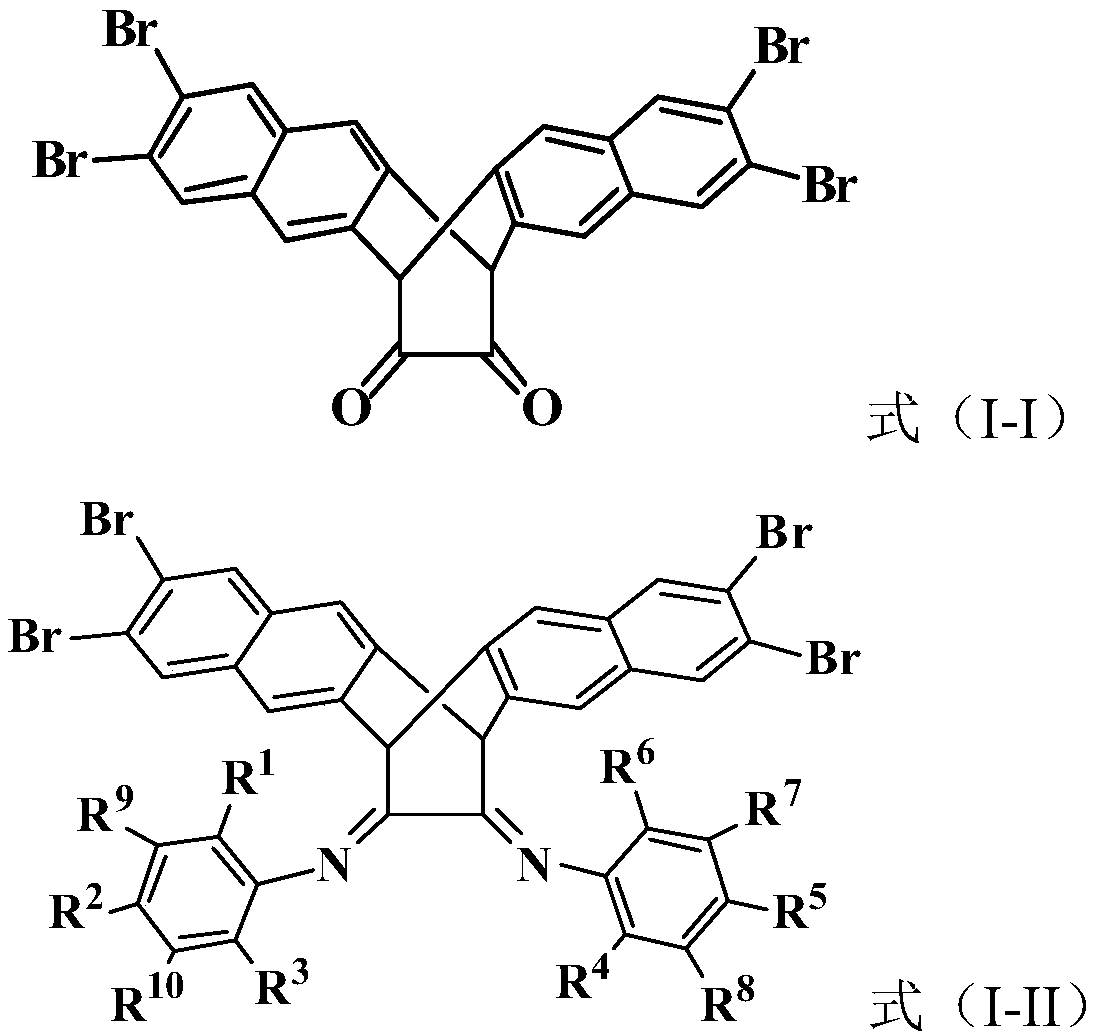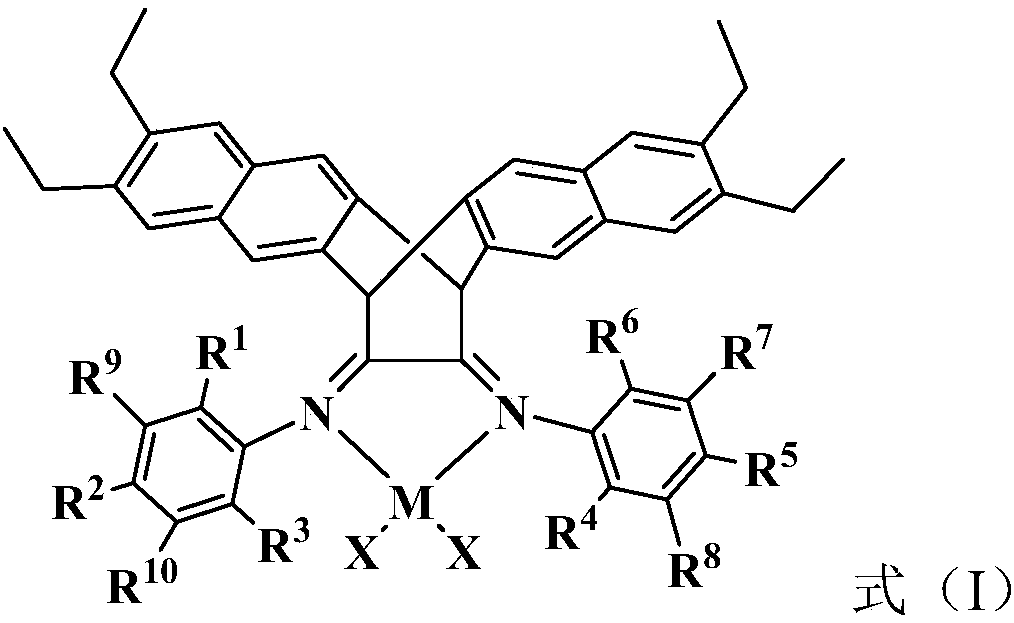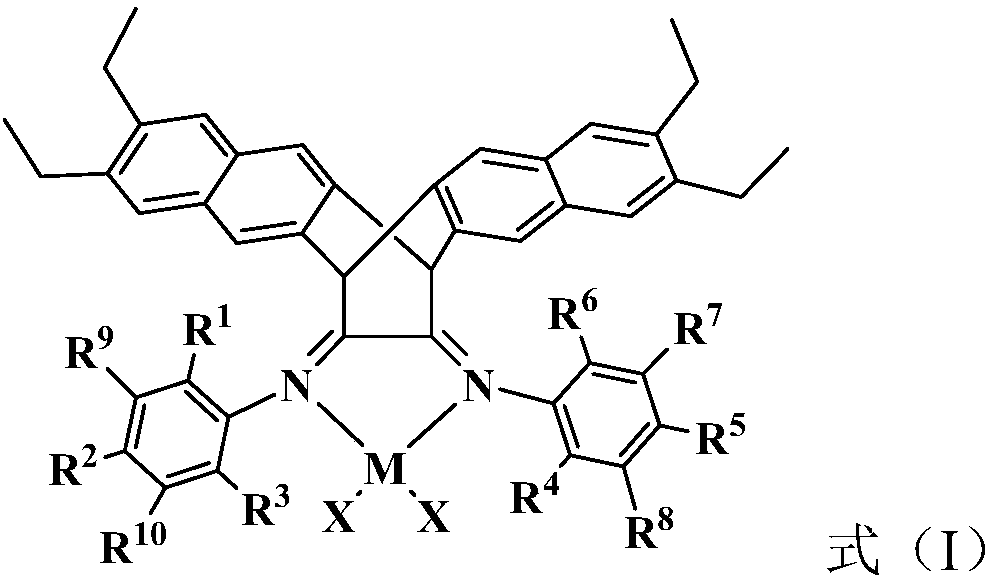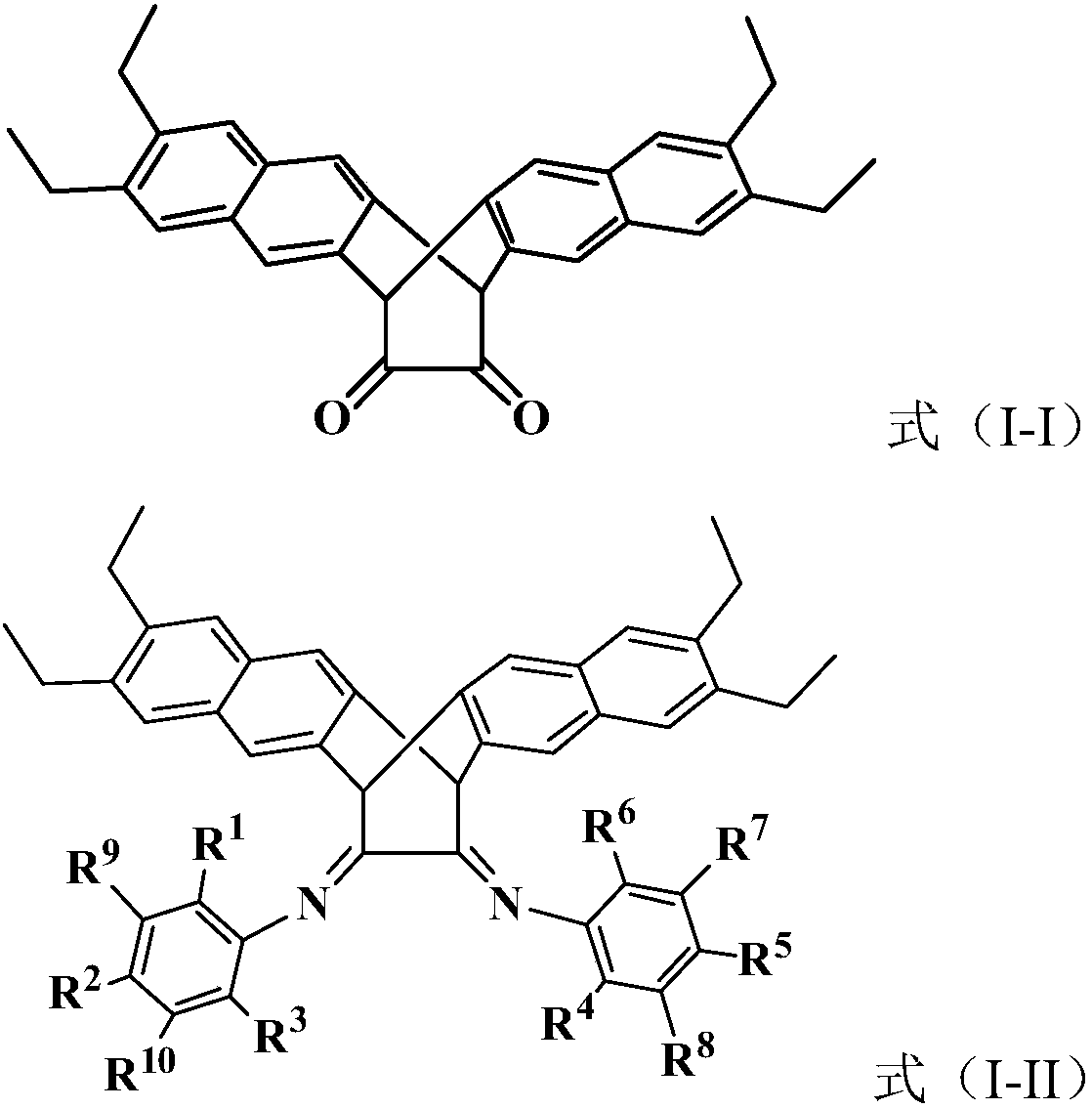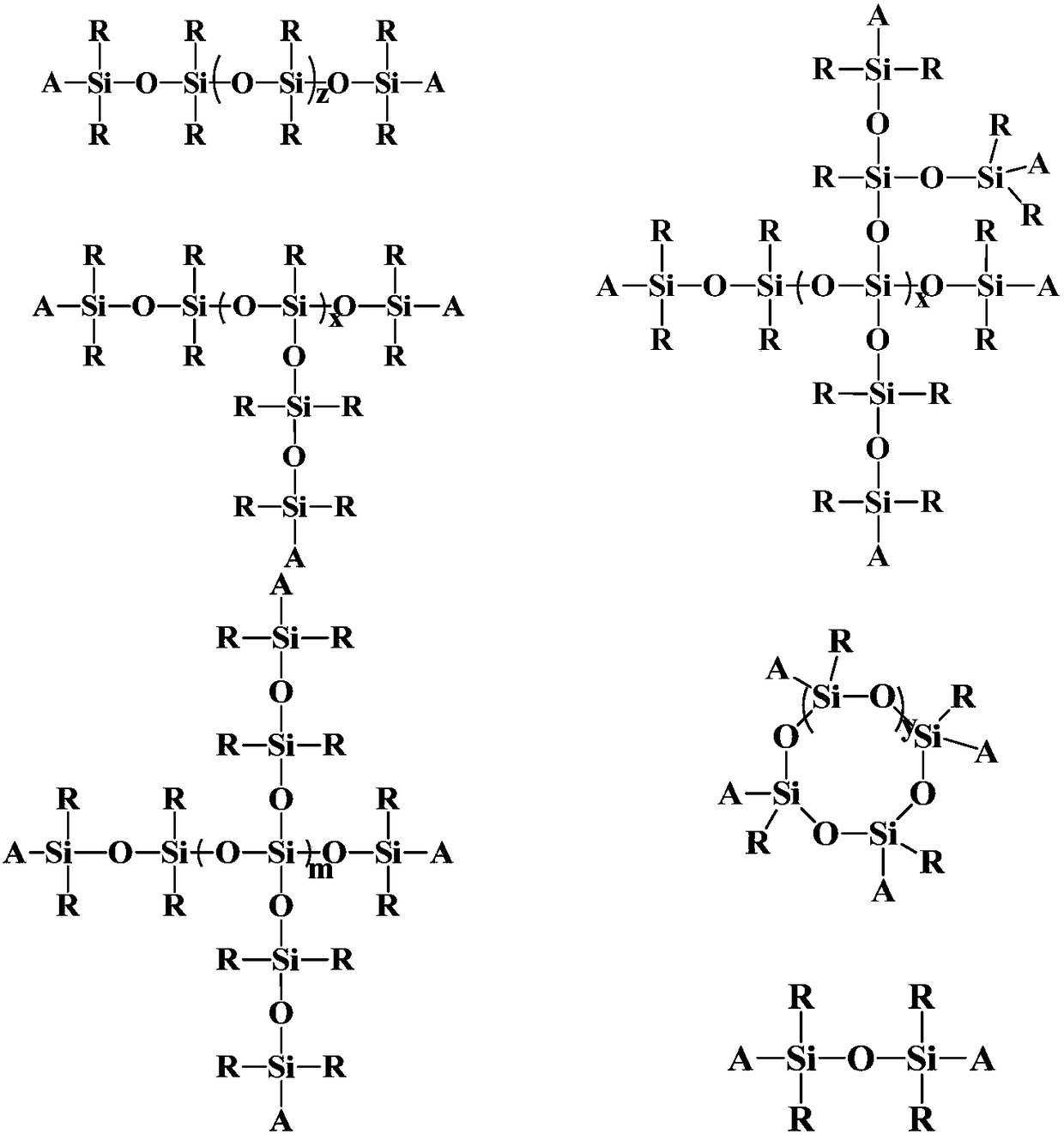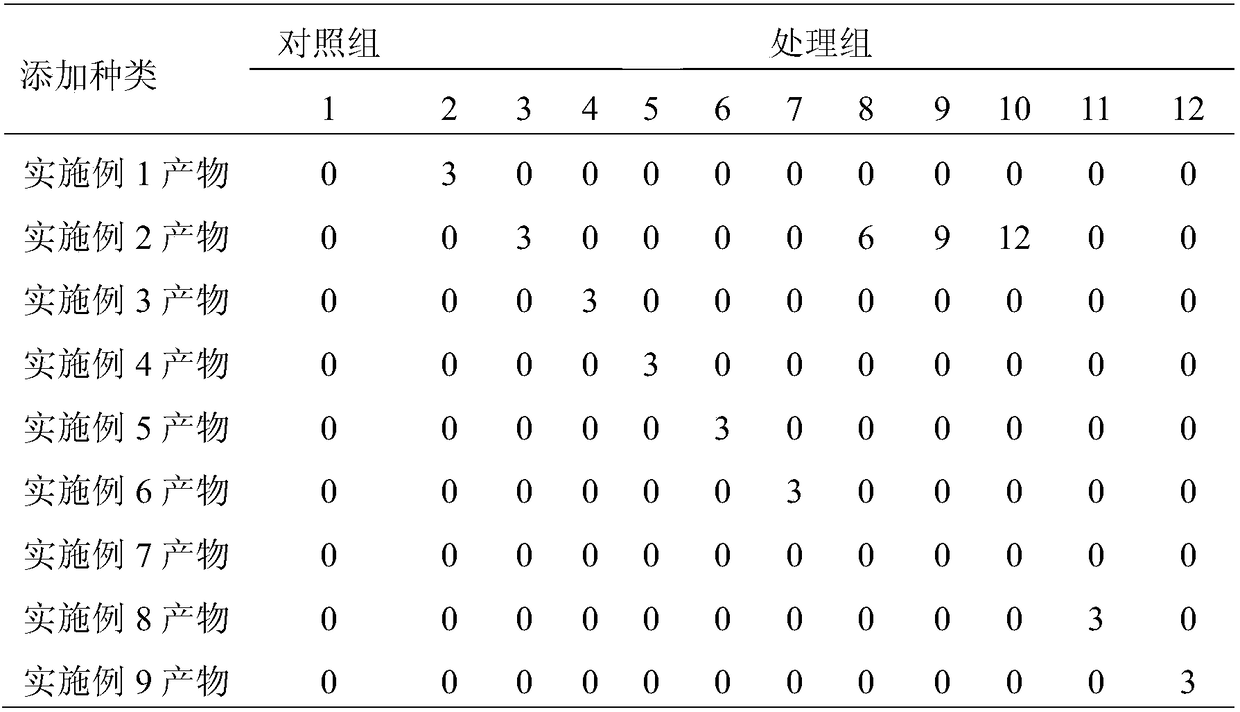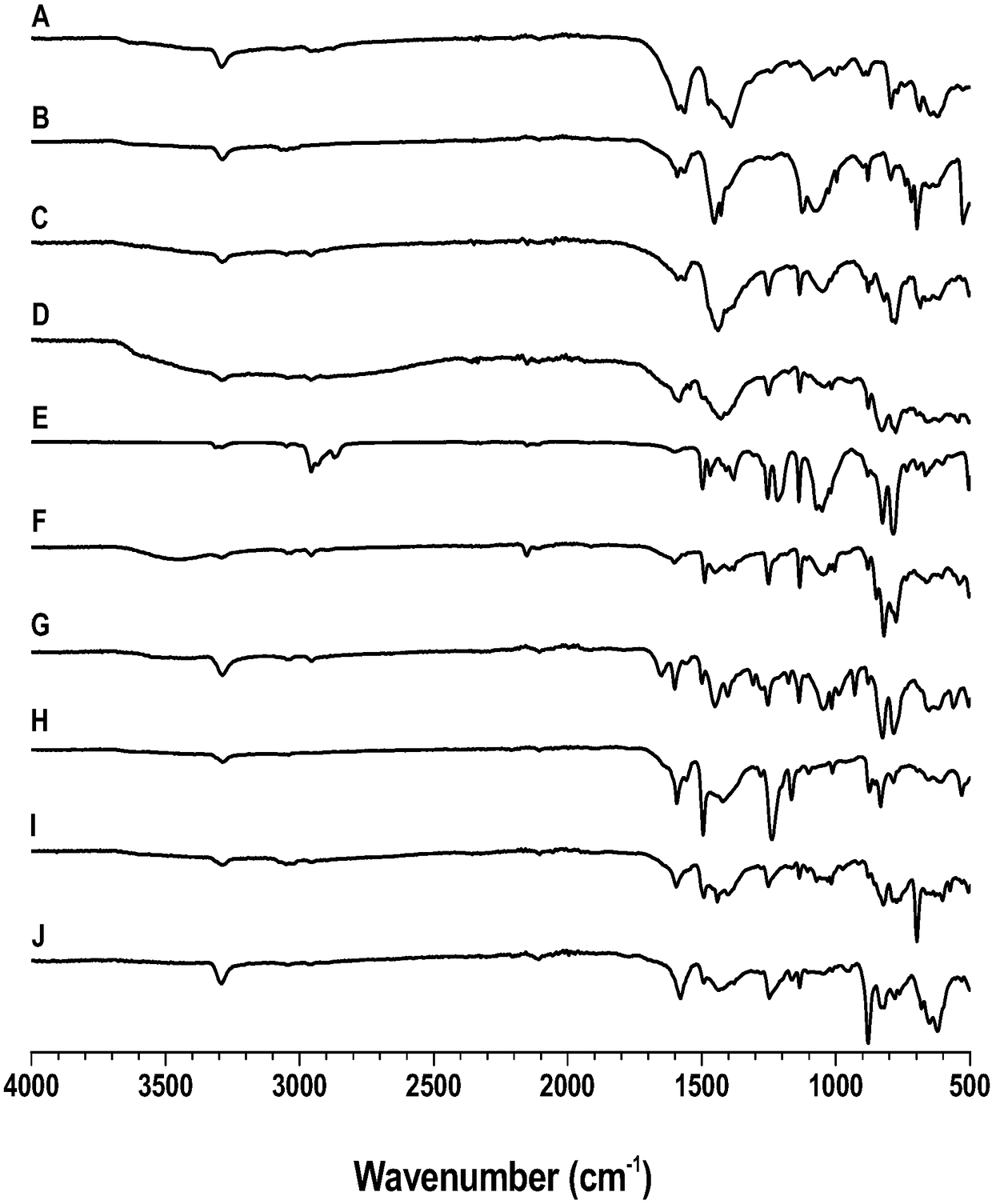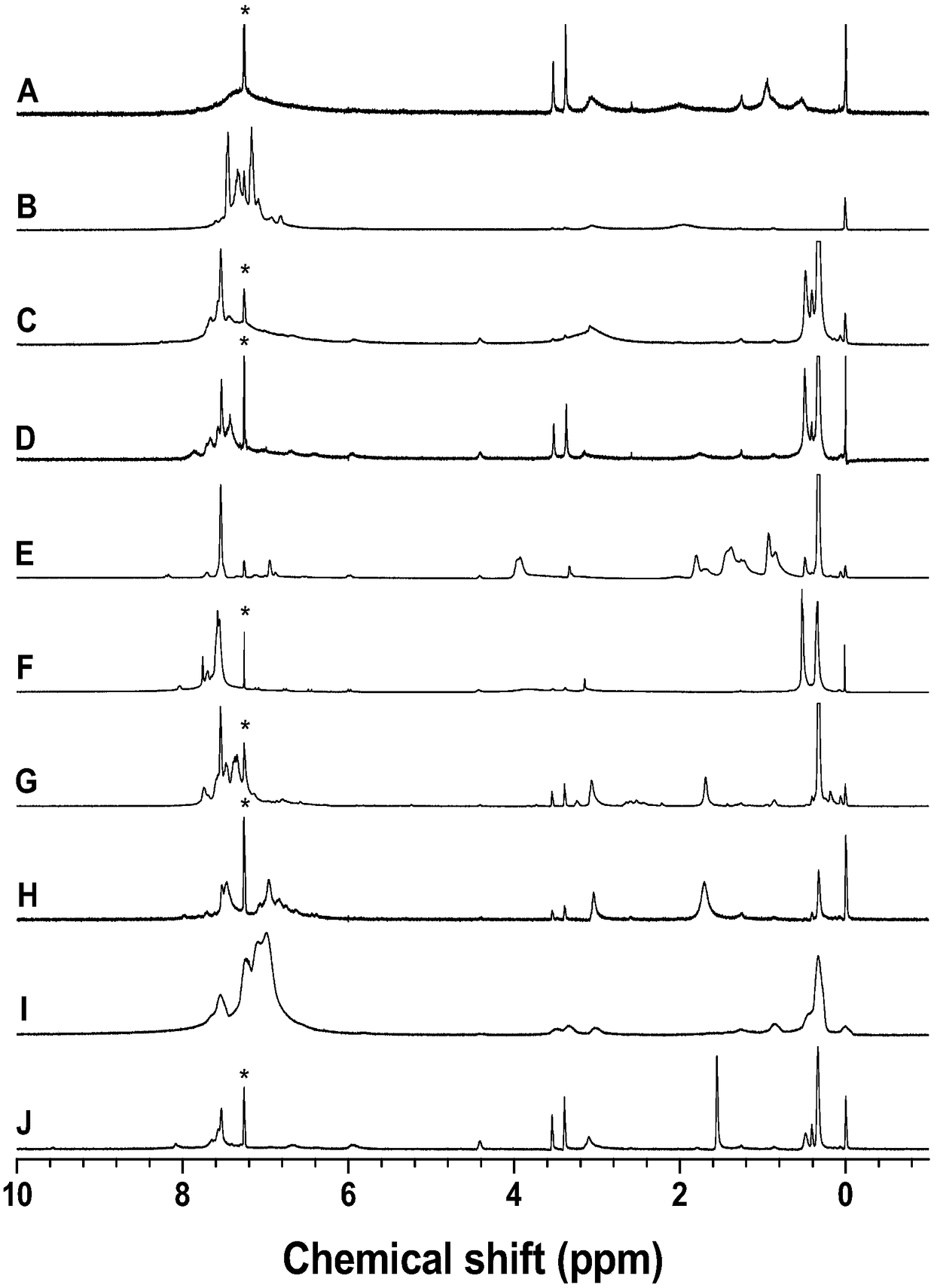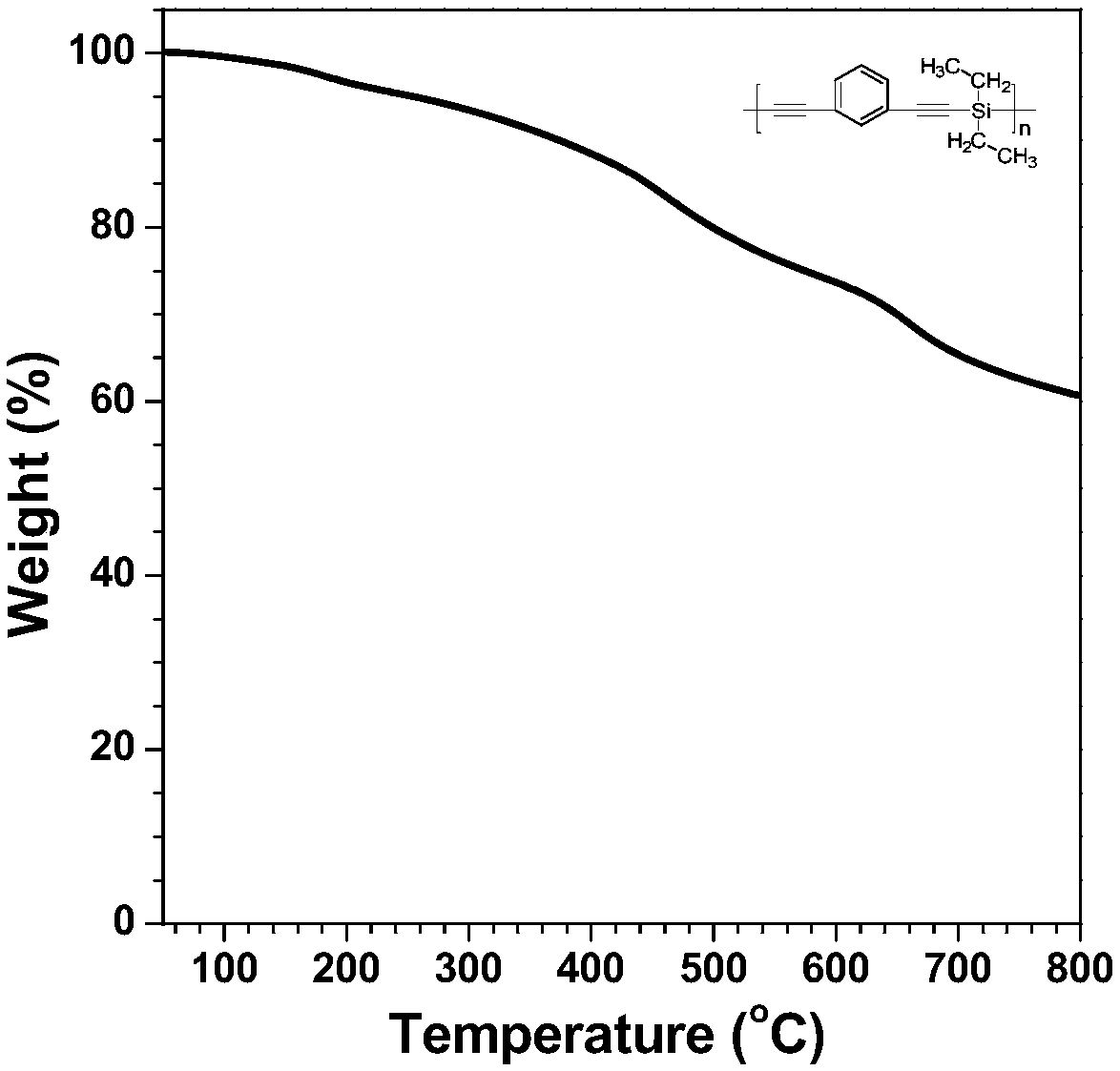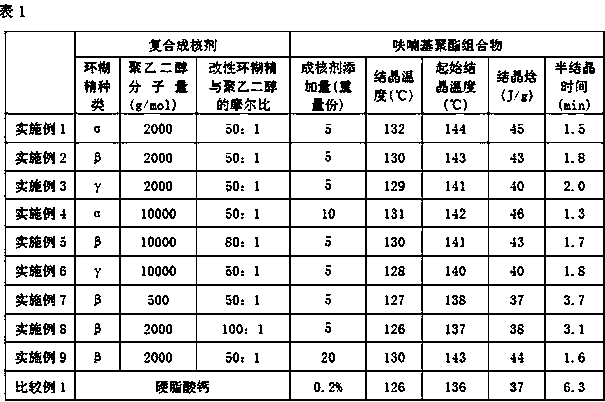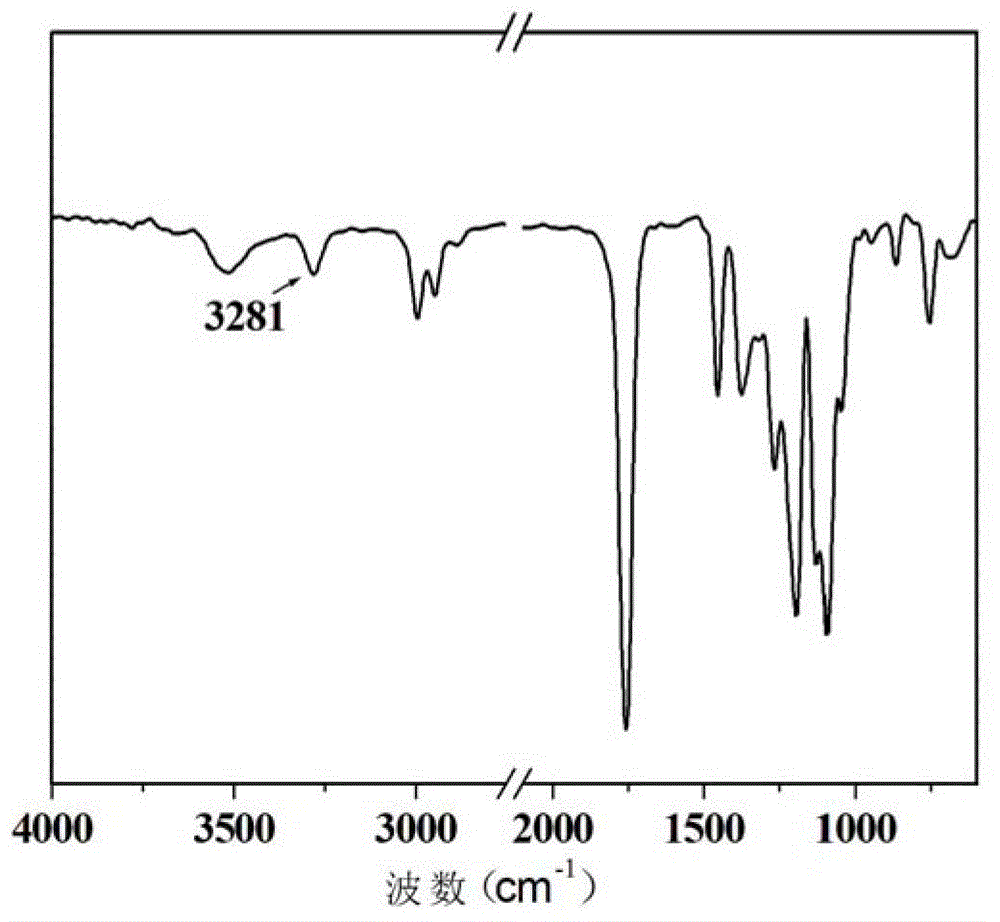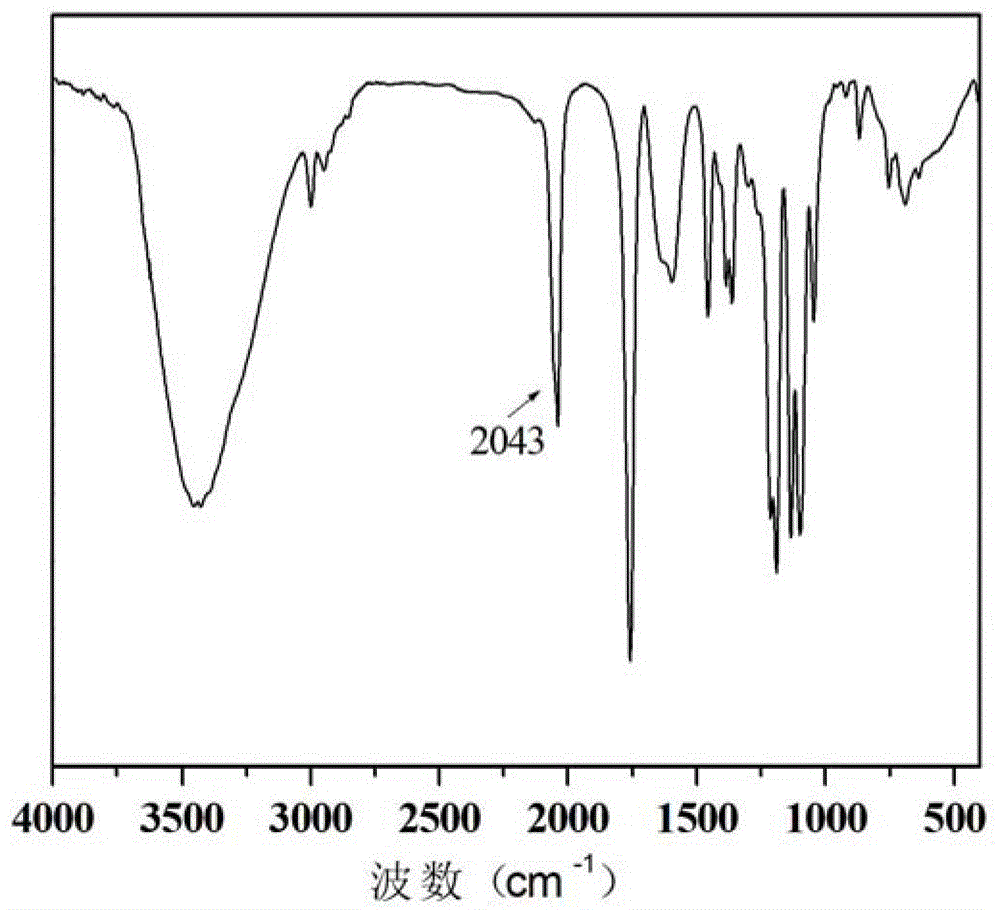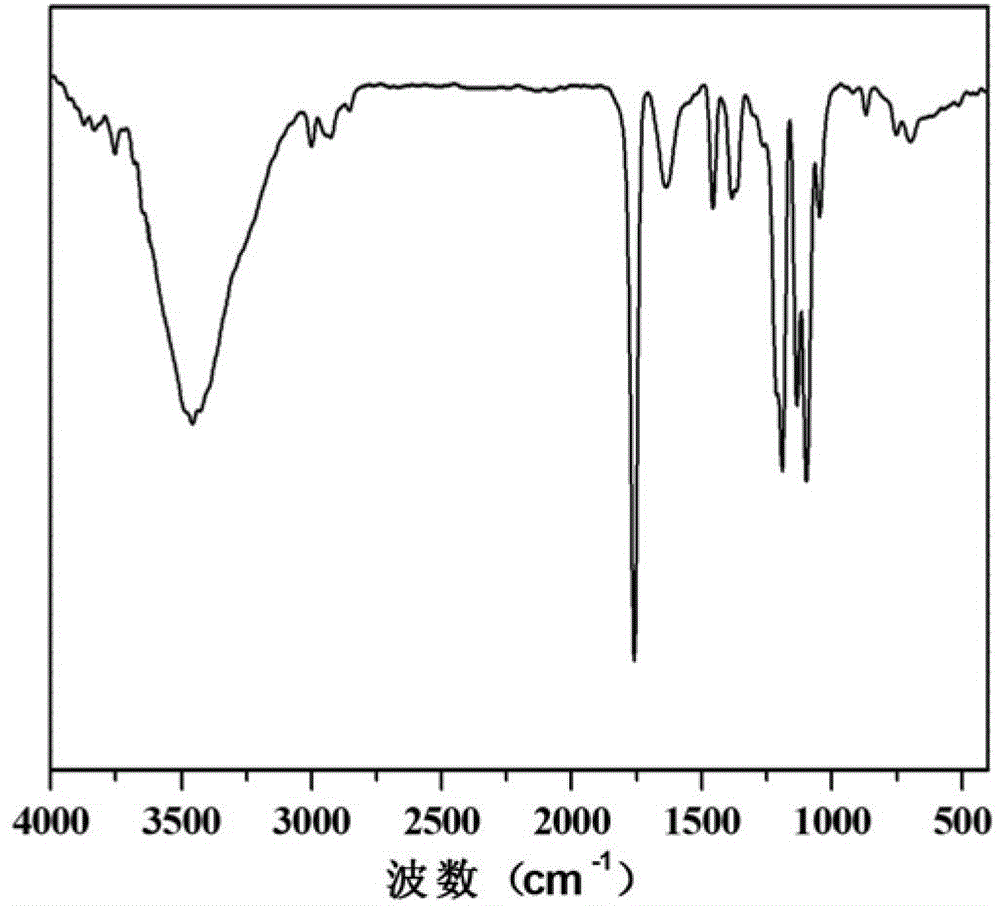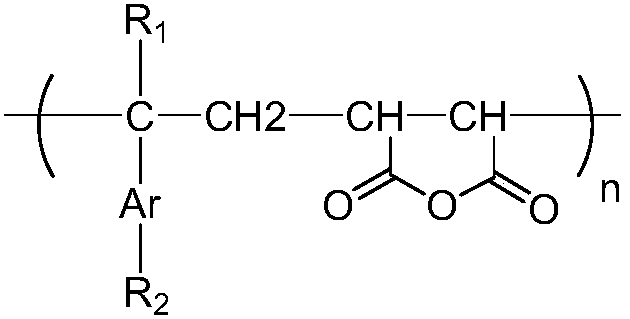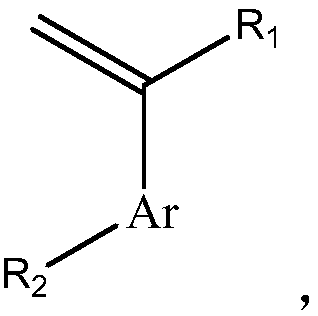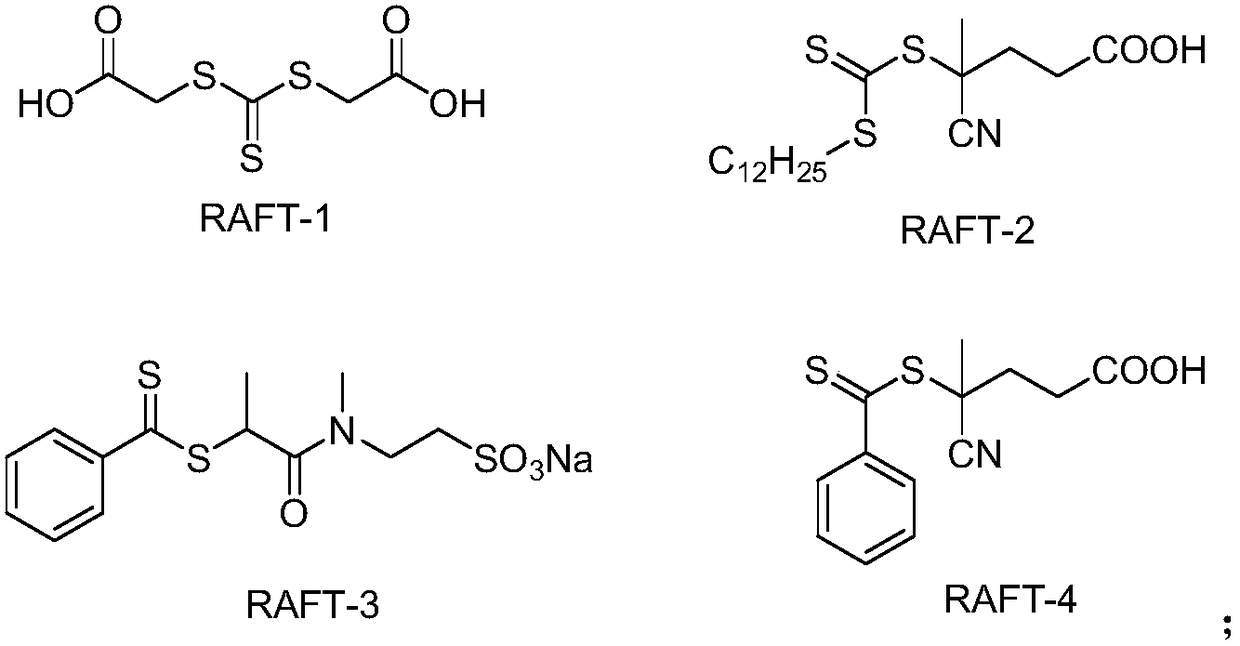Patents
Literature
30results about How to "Regulating Molecular Weight" patented technology
Efficacy Topic
Property
Owner
Technical Advancement
Application Domain
Technology Topic
Technology Field Word
Patent Country/Region
Patent Type
Patent Status
Application Year
Inventor
Polyaspartic acid derivative and synthetic method thereof
InactiveCN107602858APrevent the growth of the main chainIncreased side chain branching rateSide chainPhosphoric acid
The invention provides a polyaspartic acid derivative synthetic method. The method comprises the following steps: monosaccharide or disaccharide and monochloro acetic acid are reacted under catalysisof NaOH, and a reactant is subjected to further acidifying and purification to obtain carboxymethyl saccharide; carboxymethyl saccharide and diamine are subjected to dehydration condensation under catalysis of phosphoric acid to obtain glycosyl acetyl diamine; L-aspartic acid and phosphoric acid are respectively added in a kneading reactor for mixing, a mixture is stirred and heated, polymerization is carried out for preset time to obtain polysuccinimide; glycosyl acetyl diamine is added in a reaction vessel of polysuccinimide for a reaction, polysuccinimide is subjected to ring-opening and grafting reaction to obtain a polysuccinimide derivative; the polysuccinimide derivative is added in a hydrolysis kettle, an aqueous solution of alkali is add drop by drop, a hydrolysis reaction is carried out, and a liquid-phase product after hydrolysis is a glycosyl acetyl diamine-grafted modified polyaspartate aqueous solution. The synthetic method is simple and easy to operate, a grafting modification step and a polymerization step are coupled, so that the side-chain grafting rate is increased and the polymericular weight can be regulated and controlled.
Owner:苏州美瑞姿生物科技有限公司
Preparation system and preparation method for polyisobutylene
The invention discloses a preparation system and a preparation method for polyisobutylene. The system comprises an isobutylene storage tank, a catalyst storage tank, a termination agent storage tank, a rapid mixer, a static mixing tube type polymerization reactor and a rapid reaction termination mixer. The isobutylene storage tank is connected to an isobutylene cooler through a pipeline and a raw material delivery pump. The isobutylene cooler is in pipeline connection with a raw material inlet of the rapid mixer. The catalyst storage tank is connected to the catalyst inlet of the rapid mixer through a pipeline and a catalyst metering pump. The outlet of the rapid mixer is communicated with the inlet of the static mixing tube type polymerization reactor, the outlet of which is communicated with the reaction feed inlet of the rapid reaction termination mixer. The termination agent storage tank is connected to the termination agent inlet of the rapid reaction termination mixer through a pipeline and a termination agent delivery pump. The static mixing tube type polymerization reactor is located in a constant temperature brine bath groove. The system provided by the invention has the advantages of uniform reaction temperature, narrow molecular weight distribution of polyisobutylene, and controllable molecular weight, etc.
Owner:HEBEI UNIVERSITY OF SCIENCE AND TECHNOLOGY
Gamma-PGA polymerase gene recombinant strain as well as construction method and application thereof
ActiveCN112175982AIncrease productionRegulating Molecular WeightCosmetic preparationsBacteriaBiotechnologyBacillus licheniformis
The invention discloses a gamma-PGA polymerase gene recombination strain as well as a construction method and application thereof, relates to a production process for synthesizing gamma-polyglutamic acid from a sugar raw material through one-step fermentation, and belongs to the field of synthetic biology and fermentation engineering. According to the invention, a gene cluster capBCA of gamma-polyglutamic acid synthetase of naturally produced bacillus licheniformis is cloned into corynebacterium glutamicum F343 with high yield of glutamic acid for exogenous expression, and on the basis, the molecular weight of gamma-PGA produced by recombinant strains Cg 1 / 10BCA, Cg B1 / 10CA and Cg BC1 / 10A obtained by regulating and controlling the expression level of each gene of a synthetase gene clusterby utilizing RBS regulating and controlling elements with different strengths is 295.47-28018 kDa. According to the method, an exogenous synthesis path of polyglutamic acid is successfully constructed, the purpose of reasonably controlling the molecular weight of gamma-PGA is achieved, raw materials and process control cost are saved, economic benefits are improved, the application range of polyglutamic acid is expanded, and the method has very good industrial application value and prospect.
Owner:JIANGNAN UNIV
Method for synthesizing high molecular weight polycarbonate, catalyst and application
The invention relates to a method for synthesizing high molecular weight polycarbonate, a catalyst and application in the technical field of polymer synthesis. The method comprises that diphenyl carbonate and dihydric alcohol as raw materials undergo a one-step melt transesterification polycondensation reaction to produce high molecular weight polycarbonate. The method can be widely used for aliphatic polycarbonate, aromatic polycarbonate, isosorbide-based polycarbonate and tricyclodecane dimethanol-based polycarbonate. After the transesterification polycondensation reaction, the catalyst canbe used as an inorganic filler directly residual in the polymer without separation and subsequent treatment. The catalyst is selected from a metal oxide and / or a metal-aluminum complex oxide and the metal is at least one of alkaline earth metals and zinc. Compared with the existing homogeneous catalyst systems such as a titanium group, a transition metal salt and a strong base, the catalyst used by the method has the advantages of simple preparation processes, low toxicity, good polymer color and no use of a catalyst in the separation process.
Owner:CHENGDU ORGANIC CHEM CO LTD CHINESE ACAD OF SCI
Palladium-containing catalyst and preparation method thereof, composition prepared from palladium-containing catalyst, and application of composition
ActiveCN107602734AHigh insertion rateAvoid inactivationGroup 8/9/10/18 element organic compoundsPolymer sciencePtru catalyst
The invention relates to a palladium-containing catalyst and a preparation method thereof, a composition prepared from the palladium-containing catalyst, and application of the composition. The structural formula of the palladium-containing catalyst is described in the description. The preparation method of the palladium-containing catalyst comprises the following steps: firstly, dissolving 2-hydroxy-1,4-naphthoquinone and substituted aniline into an organic solvent for carrying out a reaction so as to obtain an aniline naphthoquinone ligand; dissolving the aniline naphthoquinone ligand into an organic solvent, and adding a hydrogen extraction reagent for carrying out a reaction so as to obtain a ligand salt compound; adding a palladium precursor into the ligand salt compound for carryingout a reaction so as to obtain an intermediate metal complex; finally, adding a pyridine reagent into the intermediate metal complex for carrying out a reaction to obtain the catalyst. The compositioncan be prepared from the palladium-containing catalyst and a catalyst promoter. The palladium-containing catalyst uses palladium as a metal center, is higher in activity of catalyzing homopolymerization of ethylene and copolymerization of olefin and a polar monomer, also can reach a certain activity without needing a catalyst promoter, and is good in economical efficiency and high in polarity / functional monomer insertion rate. The composition prepared from the palladium-containing catalyst has higher catalytic activity when a very small amount of the catalyst promoter is used.
Owner:DONGHUA UNIV
Reactive hyperbranched siloxane resin as well as preparation method and application thereof
The invention belongs to the field of chemical synthesis and discloses reactive hyperbranched siloxane resin as well as a preparation method and application thereof. The reactive hyperbranched siloxane resin is mainly prepared according to the following steps: adding a chain transfer catalyst, an initiating agent and a raw material monomer provided with an active group into a reaction vessel, reacting for 0.5-5 hours at the temperature of 50-100 DEG C, and purifying the obtained reaction product, so that the required reactive hyperbranched siloxane resin is obtained. The reactive hyperbranched siloxane resin obtained through chain transfer catalytic reaction has the advantages that structure surface active groups only contain double bond and influence of formation of hydroxyl groups in condensation reaction is avoided; the obtain reactive hyperbranched siloxane resin contains a large amount of double bond active groups which can participate in reaction of solvent-free polyorganic-based siloxane composite and change structure of a crosslinking system, so that a release layer with excellent performance is obtained.
Owner:国科广化(南雄)新材料研究院有限公司 +2
Non-aromatic amine small molecule photoelectric material and preparation and application thereof
ActiveCN109776490AEffective control of dihedral angleRegulating Molecular WeightOrganic chemistrySolid-state devicesQuantum yieldStructural formula
Owner:SOUTH CHINA UNIV OF TECH
Variable-stiffness self-repairing material containing metal-sulfydryl coordinate bond as well as preparation and application thereof
ActiveCN113817173AMild reaction conditionsSimple stepsAdditive manufacturing apparatusAdhesivesSolventCompositermes
The invention relates to a variable stiffness self-repairing material containing a metal-sulfydryl coordination bond. The variable stiffness self-repairing material is prepared from a sulfydryl-terminated small molecule compound, sulfydryl-terminated liquid polysulfide resin, a cross-linking agent, zinc salt, other metal salts, an alkaline regulator and a solvent. The structure of the material contains a large number of metal-sulfydryl coordination bonds, and the coordination bonds have good thermodynamic stability, so that the material has higher rigidity and mechanical strength; the good dynamic activity of the coordination bond ensures that the material has good self-repairing performance; due to the high temperature sensitivity of the coordination bond, the variable stiffness of the material in a wide temperature range is ensured; the coordination bond is insensitive to water, so that the environmental use stability of the material is ensured; meanwhile, the material has the characteristics of high transparency and adjustable refractive index. The variable stiffness self-repairing material containing the metal-sulfydryl coordinate bond can be applied to the fields of sealants, self-repairing coatings, temperature-sensitive variable stiffness self-repairing engineering materials, additive manufacturing, composite materials, optical transparent adhesives and the like.
Owner:NANJING UNIV
Aqueous phase preparation method of maleic anhydride-conjugated diene copolymer
ActiveCN109160974AImprove reaction efficiencyInitiation efficiency is highSolution systemMaleic anhydride
The invention provides an aqueous phase preparation method of a maleic anhydride-conjugated diene copolymer. The aqueous phase preparation method comprises the following steps: S1, stirring and dissolving maleic anhydride, an RAFT reagent, a cross-linking agent and water according to the quantity of a formula to obtain a mixed solution; S2, heating and warming the mixed solution to 60 to 80 DEG C,dropwise adding a conjugated diene copolymer monomer and an initiator into the mixed solution, and stirring at a constant speed; S3, after the conjugated diene copolymer monomer and the initiator areadded dropwise in the step S2, warming the solution system to 85 to 110 DEG C, and continuously reacting for 1.5 to 3 h; and S4, cooling the temperature of the system after the reaction in the step S3 to room temperature, using alkaline to adjust the pH until neutral to obtain a maleic anhydride-conjugated diene copolymer aqueous solution. According to the aqueous phase preparation method of themaleic anhydride-conjugated diene copolymer provided by the invention, water is used for taking the place of an organic solvent as a reaction medium, the preparation method is green and environmentally-friendly, and the obtained copolymer aqueous solution can be directly used in the fields of water paints, water pigments and the like.
Owner:TIANJIN ANHAO PHARMATECH CO LTD
Device and method for preparing SAN resin with stable composition and low volatile components
InactiveCN113877498AEnsure controllabilityLittle change in compositionDistillation separationChemical/physical/physico-chemical stationary reactorsPolymer scienceBulk polymerization
The invention provides a device and a method for preparing SAN resin with stable composition and low volatile components, and belongs to the field of high polymer material preparation methods. According to the method, the SAN resin is prepared by adopting continuous bulk polymerization of thermal-initiated free radicals, acrylonitrile steam is controlled to instantaneously condense and flow back to a reaction kettle to participate in polymerization at the top of the kettle through a built-in condensing coil at the top of the polymerization kettle, and stable composition of styrene and acrylonitrile monomers and the final SAN resin in a reaction system is ensured. A two-stage devolatilization mode in which two static flash tanks are connected in series in the conventional SAN resin preparation process is optimized into a one-stage flash tank static devolatilization and two-stage double-screw devolatilization extruder dynamic devolatilization mode, so that the thermal degradation risk of the SAN resin at the high temperature of the two-stage devolatilization device is effectively reduced, and the mechanical property, transparency and appearance quality of the SAN resin are improved. Meanwhile, compared with the devolatilization effect of a two-stage series static flash tank, the volatile component content of the SAN resin obtained by the process is lower and can reach 600-700ppm.
Owner:CHANGCHUN UNIV OF TECH
Star-shaped comb-type fluorescent polylactic acid and preparation method thereof
The invention discloses a star-shaped comb-type fluorescent polylactic acid and a preparation method thereof, and belongs to the technical field of high molecular materials. The structure of the star-shaped comb-type fluorescent polylactic acid is C-(Pf)n, wherein C is a star-shaped macroinitiator residue, P is polylactic acid, f is a fluorescent functional group, n is the star-shaped branching degree, and n is greater than or equal to 3; the number-average molecular weight of the star-shaped comb-type fluorescent polylactic acid is 1*10<4>-50*10<4> g / mol, and the single-arm number-average molecular weight is 0.1*10<4>-2*10<4> g / mol; a star-shaped macroinitiator is a star-shaped hydroxylated polymer, there are 8-60 hydroxide radicals, and the number-average molecular weight is 0.1*10<4>-2*10<4> g / mol; the fluorescent functional group comprises fluorescent small molecules containing carboxy groups, and the end blocking rate of the fluorescent small molecules is 10%-100%. Firstly, an active anion reaction is utilized for synthesizing a star-shaped hydroxylated polymer initiator, organic alkali is taken as a catalyst, and lactide ring opening polymerization is catalyzed; a kind of star-shaped comb-type polylactic acid is synthesized, the star-shaped comb-type polylactic acid and the fluorescent functional group are subjected to a grafting reaction, and the star-shaped comb-type high-branching fluorescent polylactic acid is prepared. The functionalization method is simple, synthesis reaction conditions are mild, and a star-shaped comb-type high branching structure effectively improves the polymer performance and the fluorescence enhancement efficiency.
Owner:DALIAN UNIV OF TECH
Lithium sulfonate-containing ionic copolymer and preparation method thereof
ActiveCN112210033AImprove transmission efficiencyImprove ionic conductivityMonomer compositionVinyl ether
The invention discloses a lithium sulfonate-containing ionic copolymer and a preparation method thereof. The lithium sulfonate-containing ionic copolymer comprises x mole parts of a polyvinylidene fluoride structural unit (A) composed of vinylidene fluoride monomers, y mole parts of an acrylate structural unit (B) composed of acrylate monomers and z mole parts of a perfluorovinyl ether lithium sulfonate structural unit (C) composed of perfluorovinyl ether lithium sulfonate monomers. The copolymer composed of the three compound structural units retains the advantage structure of polyvinylidenefluoride, so enough mechanical strength and thermal stability of the copolymer are ensured; by introducing a lithium ion high-efficiency transmission structural unit, a polar group and a large numberof super-stable structural units, the defects of the existing PVDF used as a polymer lithium ion battery material are overcome, the transmission efficiency of lithium ions is optimized, the ionic conductivity of a lithium battery is improved, the polarization of the battery in the charging process is reduced, and the charging and discharging performance of the battery is improved; and a new material and a new method are provided for further development and application of the lithium battery.
Owner:氟金(上海)新材料有限公司
Reducing agent monomer for preparing styrene-acrylic emulsion through oxidation reduction at normal temperature and synthesis method thereof
ActiveCN111410612AEasy to prepareLow priceOrganic compound preparationAmino-hyroxy compound preparationPolymer chemistrySulphate sodium
The invention belongs to the field of polymer synthesis, and particularly discloses a reducing agent monomer for preparing styrene-acrylic emulsion through oxidation reduction at normal temperature and a synthesis method thereof. Maleic anhydride and dimethylethanolamine are used as raw materials to synthesize the reducing agent monomer 4-(2-(dimethylamino)ethoxy)-4-oxetyl-2-olefine acid, the synthesis raw materials are cheap and easy to obtain, the synthesis conditions are simple, and purification is easy. A synthesized reducing agent monomer is used as a reducing agent; potassium persulfateis taken as and oxidant, water is taken as a dispersion medium, the styrene-acrylic emulsion is synthesized at room temperature through free radical microemulsion polymerization by taking sodium dodecyl sulfate as an emulsifier and styrene, butyl acrylate and methyl methacrylate as comonomers, a reaction system is simple and stable, reaction conditions are mild, temperature control is not needed,the influence on the environment is relatively small, the energy consumption is low, and the reducing agent monomer is suitable for industrial large-scale production. The monomer conversion rate of the synthesized styrene-acrylic emulsion is high, and the styrene-acrylic emulsion with high molecular weight and a branched structure can be obtained at normal temperature.
Owner:CHANGZHOU UNIV
Complex for catalyzing polymerization of 4-methyl-1-pentene and preparation method thereof
InactiveCN112851715ARegulating the degree of branchingRegulating Molecular WeightPalladium organic compoundsPolymer scienceOrtho position
The invention discloses a complex for catalyzing polymerization of 4-methyl-1-pentene and a preparation method of the complex. A flexible group is introduced to the ortho-position of an imine nitrogen atom aromatic ring of the complex, so that the complex provides dynamic steric hindrance in the catalytic polymerization process, the space environment of a Pd catalytic active center is finely adjusted and the branching degree and molecular weight of the polymer are regulated and controlled; meanwhile, an electron withdrawing group is introduced to the para-position of an imine nitrogen atom aromatic ring, so that the electrophilicity of a metal active center is enhanced, insertion polymerization of 4-methyl-1-pentene is facilitated, and the molecular weight of the polymer is improved.
Owner:张洪胜
A kind of copolymerization method of ethylene and terminal alkenyl silane/siloxane
ActiveCN108359035BRegulating Molecular WeightRegulating the degree of branchingPolymer sciencePtru catalyst
The invention belongs to the field of olefin copolymerization reactions, and provides a copolymerization method of ethylene and alkenyl-terminated silane / siloxane. The copolymerization method comprises that ethylene and alkenyl-terminated silane / siloxane are subjected to a copolymerization reaction in the presence of a catalyst composition, wherein the catalyst composition contains a main catalyst, a co-catalyst and an optional chain transfer agent, the main catalyst is at least one selected from coordination compounds represented by a formula (I), R<1>-R<10> are respectively and independentlyselected from hydrogen, saturated or unsaturated hydrocarbonyl, hydrocarbyloxy and the like, M is selected from a Group VIII metal, and X is a halogen. According to the present invention, the used catalyst composition has high polymerization activity in the ethylene and alkenyl-terminated silane / siloxane copolymerization reaction, can increase the contents of the copolymerization monomer and themethyl on the polymer molecular chain, and has broad industrial application prospects. The formula (I) is defined in the specification.
Owner:CHINA PETROLEUM & CHEM CORP +1
A class of star-shaped comb-shaped fluorescent polylactic acid and its preparation method
ActiveCN110452368BRegulating Fluorescence EfficiencyRegulating Molecular WeightPolymer scienceLactide
A class of star-shaped comb-shaped fluorescent polylactic acid and its preparation method belong to the technical field of polymer materials. Its structure is C-(Pf)n, wherein C is a star-shaped macromolecular initiator residue, P is polylactic acid, and f is a fluorescent function group, n is the degree of star-shaped branching, n is greater than or equal to 3; the number-average molecular weight of the star-shaped comb-shaped fluorescent polylactic acid is 1×10 4 -50×10 4 g / mol, the number average molecular weight per arm is 0.1×10 4 -2×10 4 g / mol; the star-shaped macromolecular initiator is a star-shaped hydroxylated polymer, the number of hydroxyl groups is 8-60, and the number-average molecular weight is 0.1×10 4 -2×10 4 g / mol; the fluorescent functional group is a small fluorescent molecule containing a carboxyl group, and the capping rate of the small fluorescent molecule is 10%‑100%. First, a star-shaped hydroxylated polymer initiator was synthesized by an active anion reaction, and an organic base was used as a catalyst to catalyze the ring-opening polymerization of lactide, and a class of star-shaped comb-shaped polylactic acid was grafted with a fluorescent functional group to prepare Star-shaped comb-like hyperbranched fluorescent polylactic acid. The functionalization method is simple, the synthesis reaction conditions are mild, and the star-shaped comb-like highly branched structure effectively improves the performance of the polymer and the fluorescence imaging efficiency.
Owner:DALIAN UNIV OF TECH
Variable stiffness self-healing material containing metal-mercapto coordination bond and its preparation and application
ActiveCN113817173BImprove thermal stabilityAdjustable dynamicsAdditive manufacturing apparatusAdhesivesAdhesive cementRepair material
The invention relates to a variable-stiffness self-repairing material containing a metal-mercapto coordination bond, which is composed of a mercapto-terminated small molecule compound, a mercapto-terminated liquid polysulfide resin, a crosslinking agent, a zinc salt, other metal salts, an alkaline regulator and a solvent composition. The material structure contains a large number of metal-mercapto coordination bonds. The good thermodynamic stability of the coordination bonds ensures that the material has greater rigidity and mechanical strength; Repair performance; the high temperature sensitivity of the coordination bond ensures the variable stiffness of the material under a wide temperature range; the insensitivity of the coordination bond to water ensures the environmental stability of the material; at the same time, the material has a transparent It has the characteristics of high performance and adjustable refractive index. The variable-stiffness self-healing material containing metal-mercapto coordination bonds of the present invention can be applied to the fields of sealants, self-healing coatings, temperature-sensitive variable-stiffness self-repairing engineering materials, additive manufacturing, composite materials, optically transparent adhesives and the like.
Owner:NANJING UNIV
Copolymerization method of ethylene and alkenyl-terminated silane/siloxane
The invention belongs to the field of olefin copolymerization reactions, and provides a copolymerization method of ethylene and alkenyl-terminated silane / siloxane. The copolymerization method comprises that ethylene and alkenyl-terminated silane / siloxane are subjected to a copolymerization reaction in the presence of a catalyst composition, wherein the catalyst composition contains a main catalyst, a co-catalyst and an optional chain transfer agent, the main catalyst is at least one selected from coordination compounds represented by a formula (I), R<1>-R<10> are respectively and independentlyselected from hydrogen, saturated or unsaturated hydrocarbonyl, hydrocarbyloxy and the like, M is selected from a Group VIII metal, and X is a halogen. According to the present invention, the used catalyst composition has high polymerization activity in the ethylene and alkenyl-terminated silane / siloxane copolymerization reaction, can increase the contents of the copolymerization monomer and themethyl on the polymer molecular chain, and has broad industrial application prospects. The formula (I) is defined in the specification.
Owner:CHINA PETROLEUM & CHEM CORP +1
A kind of non-aromatic amine small molecule optoelectronic material and its preparation and application
ActiveCN109776490BEffective control of dihedral angleRegulating Molecular WeightOrganic chemistrySolid-state devicesQuantum yieldElectron hole
Owner:SOUTH CHINA UNIV OF TECH
A kind of active hyperbranched siloxane resin and its preparation method and application
ActiveCN105754113BHigh chain transfer constantHigh catalytic efficiencyCoatingsChemical synthesisSolvent free
The invention belongs to the field of chemical synthesis and discloses reactive hyperbranched siloxane resin as well as a preparation method and application thereof. The reactive hyperbranched siloxane resin is mainly prepared according to the following steps: adding a chain transfer catalyst, an initiating agent and a raw material monomer provided with an active group into a reaction vessel, reacting for 0.5-5 hours at the temperature of 50-100 DEG C, and purifying the obtained reaction product, so that the required reactive hyperbranched siloxane resin is obtained. The reactive hyperbranched siloxane resin obtained through chain transfer catalytic reaction has the advantages that structure surface active groups only contain double bond and influence of formation of hydroxyl groups in condensation reaction is avoided; the obtain reactive hyperbranched siloxane resin contains a large amount of double bond active groups which can participate in reaction of solvent-free polyorganic-based siloxane composite and change structure of a crosslinking system, so that a release layer with excellent performance is obtained.
Owner:国科广化(南雄)新材料研究院有限公司 +2
Silicon-containing aryne polymer and preparation method thereof
The invention relates to the technical field of high molecular materials, in particular to a silicon-containing aryne polymer and a preparation method thereof. The silicon-containing aryne polymer isgood in thermal stability and solubleness and can be solved in organic solvents such as tetrahydrofuran and dimethyl sulfoxide. The preparation method of the silicon-containing aryne polymer comprisesthe following steps: mixing a silane monomer, an alkyne monomer, strong base and a solvent and carrying out a heating reaction to obtain an intermediate; and adding the intermediate into a precipitator to obtain a precipitate, and filtering and collecting the precipitate to obtain the silicon-containing aryne polymer. According to the preparation method of the silicon-containing aryne polymer, the polymer is directly prepared by means of a one-pot method without a metal catalyst, so that the green chemical demand is met. The obtained polymer is high in chemical purity. The preparation methodis mild in reaction condition, free of strict anhydrous and anaerobic conditions and simple, and can be carried out in an air atmosphere.
Owner:BEIJING INSTITUTE OF TECHNOLOGYGY
Easily crystallizable furan-based polyester composition and preparation method thereof
The invention discloses an easily crystallizable furan-based polyester composition containing a polyethylene polyamine-modified cyclodextrin and ethylene glycol composite nucleating agent and a preparation method thereof. The furan-based polyester composition has the characteristics of high crystallinity and a fast crystallization speed, can shorten a molding period, can improve the performances,has simple processes and is easy to industrialize.
Owner:TORAY FIBER RES INST(CHINA) CO LTD
A kind of linear comb fluorescent polylactic acid and its preparation method
ActiveCN110591069BRegulating Fluorescence EfficiencyRegulating Molecular WeightLuminescent compositionsPolymer sciencePtru catalyst
A linear comb-like fluorescent polylactic acid and its preparation method belong to the technical field of polymer materials, and its structure is: the main chain is a linear macromolecular initiator residue, the side chain is polylactic acid, and the end of the side chain is a fluorescent functional group; The number average molecular weight of the linear comb fluorescent polylactic acid is 1×10 4 -50×10 4 g / mol, the number average molecular weight per arm is 0.1×10 4 -2×10 4 g / mol; the linear macromolecular initiator is a linear hydroxylated polymer, the number of hydroxyl groups of the linear macromolecular initiator is 8‑60, and the number average molecular weight is 0.1×10 4 -2×10 4 g / mol; the fluorescent functional group is a small fluorescent molecule containing a carboxyl group, and the capping rate of the small fluorescent molecule is 10%‑100%. First, a linear hydroxylated polymer initiator was synthesized by an active anion reaction, and an organic base was used as a catalyst to catalyze the ring-opening polymerization of lactide to synthesize a kind of linear comb-like polylactic acid and a fluorescent functional group for grafting reaction to prepare a linear comb highly branched fluorescent polylactic acid. The functionalization method is simple, the synthesis reaction conditions are mild, and the linear comb-like highly branched structure effectively improves the performance of the polymer and the fluorescence developing efficiency.
Owner:DALIAN UNIV OF TECH
A kind of silicon-containing aryne polymer and preparation method thereof
The invention relates to the technical field of high molecular materials, in particular to a silicon-containing aryne polymer and a preparation method thereof. The silicon-containing aryne polymer isgood in thermal stability and solubleness and can be solved in organic solvents such as tetrahydrofuran and dimethyl sulfoxide. The preparation method of the silicon-containing aryne polymer comprisesthe following steps: mixing a silane monomer, an alkyne monomer, strong base and a solvent and carrying out a heating reaction to obtain an intermediate; and adding the intermediate into a precipitator to obtain a precipitate, and filtering and collecting the precipitate to obtain the silicon-containing aryne polymer. According to the preparation method of the silicon-containing aryne polymer, the polymer is directly prepared by means of a one-pot method without a metal catalyst, so that the green chemical demand is met. The obtained polymer is high in chemical purity. The preparation methodis mild in reaction condition, free of strict anhydrous and anaerobic conditions and simple, and can be carried out in an air atmosphere.
Owner:BEIJING INSTITUTE OF TECHNOLOGYGY
Cyclic biodegradation aliphatic polyester and preparation method thereof
ActiveCN103382252BRegulating Molecular WeightStrong specificityBulk chemical productionPolyesterHemocompatible Materials
The invention discloses cyclic biodegradation aliphatic polyester and a preparation method thereof. The cyclic biodegradation aliphatic polyester is prepared through combination of ring opening polymerization and click chemical reaction. The preparation method comprises the following steps of adopting small-molecule alcohol containing acetylene alkynyl as an initiator to initiate ring opening polymerization of a cyclic ester monomer so as to prepare single-end alkynylation biodegradation aliphatic polyester; enabling the single-end alkynylation biodegradation aliphatic polyester and acid halide and sodium azide to perform reaction sequentially to prepare linear biodegradation aliphatic polyester containing the acetylene alkynyl and azide group; and finally, preparing the cyclic biodegradation aliphatic polyester through the click chemical reaction. The ring size of the cyclic biodegradation aliphatic polyester is controllable, reaction conditions are moderate, and reaction products are pure. In addition, the cyclic biodegradation aliphatic polyester has a topological structure and performance which are different from a structure and the performance of corresponding linear biodegradation aliphatic polyester and can be well applied in the aspects of sustained or controlled release of drug carriers, scaffolds for tissue engineering, blood compatible materials and the like.
Owner:JINAN UNIVERSITY
A kind of aqueous phase preparation method of maleic anhydride-conjugated diene copolymer
The invention provides an aqueous phase preparation method of a maleic anhydride-conjugated diene copolymer. The aqueous phase preparation method comprises the following steps: S1, stirring and dissolving maleic anhydride, an RAFT reagent, a cross-linking agent and water according to the quantity of a formula to obtain a mixed solution; S2, heating and warming the mixed solution to 60 to 80 DEG C,dropwise adding a conjugated diene copolymer monomer and an initiator into the mixed solution, and stirring at a constant speed; S3, after the conjugated diene copolymer monomer and the initiator areadded dropwise in the step S2, warming the solution system to 85 to 110 DEG C, and continuously reacting for 1.5 to 3 h; and S4, cooling the temperature of the system after the reaction in the step S3 to room temperature, using alkaline to adjust the pH until neutral to obtain a maleic anhydride-conjugated diene copolymer aqueous solution. According to the aqueous phase preparation method of themaleic anhydride-conjugated diene copolymer provided by the invention, water is used for taking the place of an organic solvent as a reaction medium, the preparation method is green and environmentally-friendly, and the obtained copolymer aqueous solution can be directly used in the fields of water paints, water pigments and the like.
Owner:TIANJIN ANHAO PHARMATECH CO LTD
Method for preparing epoxy propyl ionic liquid and polyether-type macroion liquid
The invention provides a preparation method for epoxy propyl ionic liquid and its polyether type macromolecular iconic liquid, which is characterized in that: due to the epoxy propyl structure in the epoxy propyl ionic liquid, the dissolving ability, conductibility and polymerization is better; polymerization is carried out for the epoxy propyl ionic liquid, to acquire polyether type macromolecular iconic liquid; main chains of the polyether type macromolecular iconic liquid are flexible chains with low glass-transition temperature; complex occurs between ether bonds of the polyether type macromolecular iconic liquid and certain metal ions; high-density ionic liquid groups are arranged on side chains, thereby higher conductivity, better compatibility with small molecular iconic liquid as well as inorganic salts, and excellent mechanical property are capable of being realized for the polyether type macromolecular iconic liquid. Adopted as raw materials for electrochemical devices such as batteries, capacitors and color alteration apparatus for light, the preparation method for epoxy propyl ionic liquid and the polyether type macromolecular iconic liquid has the advantages of broad prospect and application areas.
Owner:HENAN UNIV OF SCI & TECH
A kind of synthetic method of high molecular weight polycarbonate and its catalyst and application
The invention relates to a method for synthesizing high-molecular-weight polycarbonate and its catalyst and application in the technical field of polymer synthesis. The method of the invention is a method for synthesizing high-molecular-weight polycarbonate by taking diphenyl carbonate and glycol as raw materials through one-step melt transesterification polycondensation reaction. This method can be widely used in aliphatic polycarbonate, aromatic polycarbonate, isosorbide-based polycarbonate and tricyclodecane dimethanol-based polycarbonate. After the transesterification polycondensation reaction is completed, the catalyst can be directly left in the polymer as an inorganic filler without separation and subsequent treatment. The catalyst is selected from metal oxides and / or composite oxides of metal and aluminum, wherein the metal is selected from at least one of alkaline earth metals and zinc. Compared with the existing homogeneous catalyst systems such as titanium base, transition metal salt and strong base, the catalyst adopted in the invention has the advantages of simple preparation method, low toxicity, good color of the synthesized polymer and no catalyst separation process.
Owner:CHENGDU ORGANIC CHEM CO LTD CHINESE ACAD OF SCI
Aqueous phase ultrasonic synthesis method for maleic anhydride/alpha-arylalkene copolymer
The invention provides an aqueous phase ultrasonic synthesis method for a maleic anhydride / alpha-arylalkene copolymer. The aqueous phase ultrasonic synthesis method comprises the following steps: carrying out ultrasonic activation treatment on deionized water, maleic anhydride, an RAFT reagent, an initiator and a cross-linking agent, then adding alpha-arylalkene for a polymerization reaction, adding appropriate alkaline, and adjusting the pH to be 7 to obtain a maleic anhydride / alpha-arylalkene copolymer aqueous solution. According to the aqueous phase ultrasonic synthesis method for the maleic anhydride / alpha-arylalkene copolymer provided by the invention, the activity and reaction rate of aqueous polymerization of the maleic anhydride / alpha-arylalkene are accelerated by utilizing a microwave technology, and the polymerization temperature is reduced so that the polymerization reaction is carried out in a milder condition.
Owner:TIANJIN ANHAO PHARMATECH CO LTD
A kind of aqueous phase ultrasonic synthesis method of maleic anhydride/α-arylene copolymer
The invention provides an aqueous phase ultrasonic synthesis method for a maleic anhydride / alpha-arylalkene copolymer. The aqueous phase ultrasonic synthesis method comprises the following steps: carrying out ultrasonic activation treatment on deionized water, maleic anhydride, an RAFT reagent, an initiator and a cross-linking agent, then adding alpha-arylalkene for a polymerization reaction, adding appropriate alkaline, and adjusting the pH to be 7 to obtain a maleic anhydride / alpha-arylalkene copolymer aqueous solution. According to the aqueous phase ultrasonic synthesis method for the maleic anhydride / alpha-arylalkene copolymer provided by the invention, the activity and reaction rate of aqueous polymerization of the maleic anhydride / alpha-arylalkene are accelerated by utilizing a microwave technology, and the polymerization temperature is reduced so that the polymerization reaction is carried out in a milder condition.
Owner:TIANJIN ANHAO PHARMATECH CO LTD
Features
- R&D
- Intellectual Property
- Life Sciences
- Materials
- Tech Scout
Why Patsnap Eureka
- Unparalleled Data Quality
- Higher Quality Content
- 60% Fewer Hallucinations
Social media
Patsnap Eureka Blog
Learn More Browse by: Latest US Patents, China's latest patents, Technical Efficacy Thesaurus, Application Domain, Technology Topic, Popular Technical Reports.
© 2025 PatSnap. All rights reserved.Legal|Privacy policy|Modern Slavery Act Transparency Statement|Sitemap|About US| Contact US: help@patsnap.com
